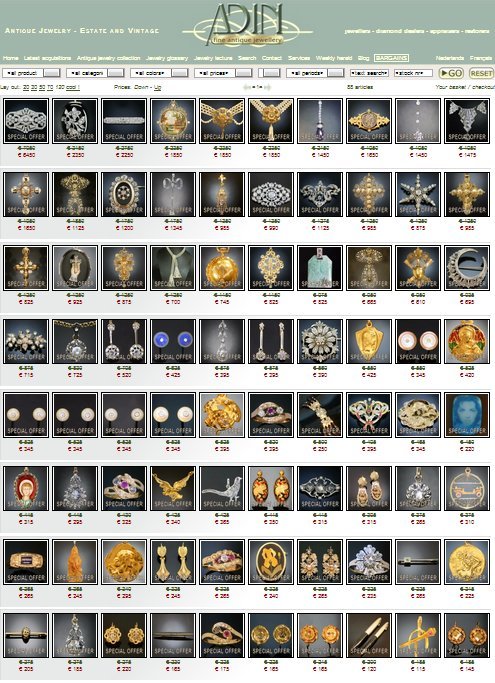We offer layaway, spread payments on the piece of your dreams. Ask us for details. Free insured shipping on all orders !!!
Weekly Antique Jewelry Herald (archive 2014)
Artistic Daydreams
with estate jewelry from The Garden of Adin
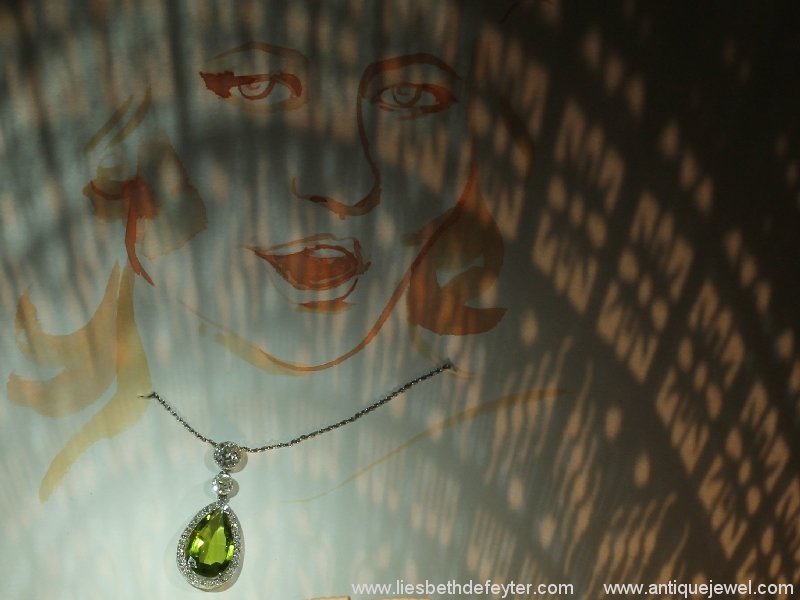 |
For whatever it is you are celebrating...
We're wishing y'all a great time!
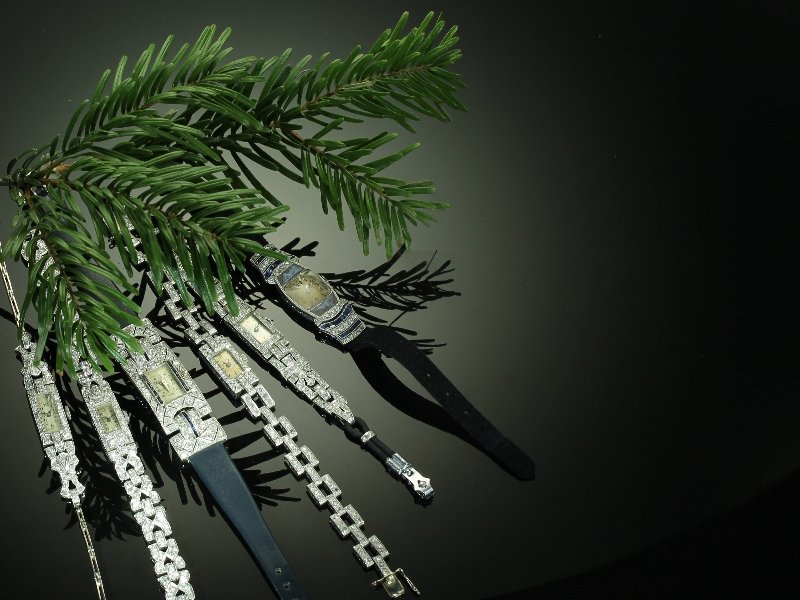 |
You are not an Adin VIP yet?
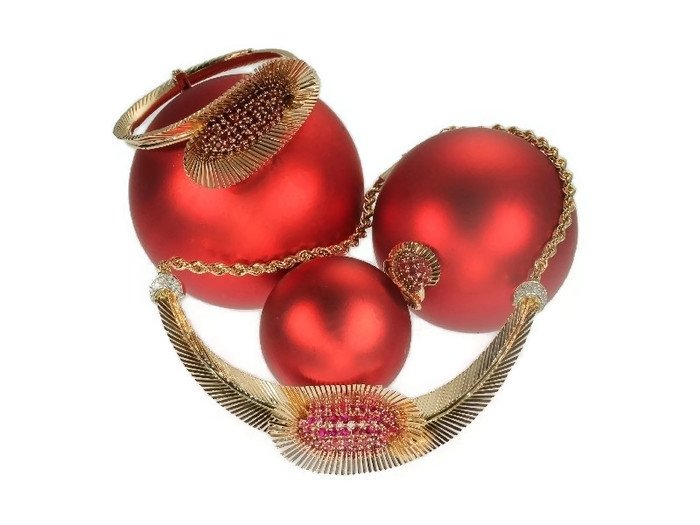 |
As a token of our appreciation we offer the people on our mailing list a real exclusive discount on our complete stock. They can use the personalized coupon code sent by mail and instantly enjoy their big discount. The coupon is valid till December 31st, 2014!
This discount is also applicable to the already discounted items but not cummulative with other coupons.
Not on our mailing list yet? Click here, subscribe yourself and enjoy the exclusive discounts!
Artistic Daydreams
with antique jewelry from The Garden of Adin
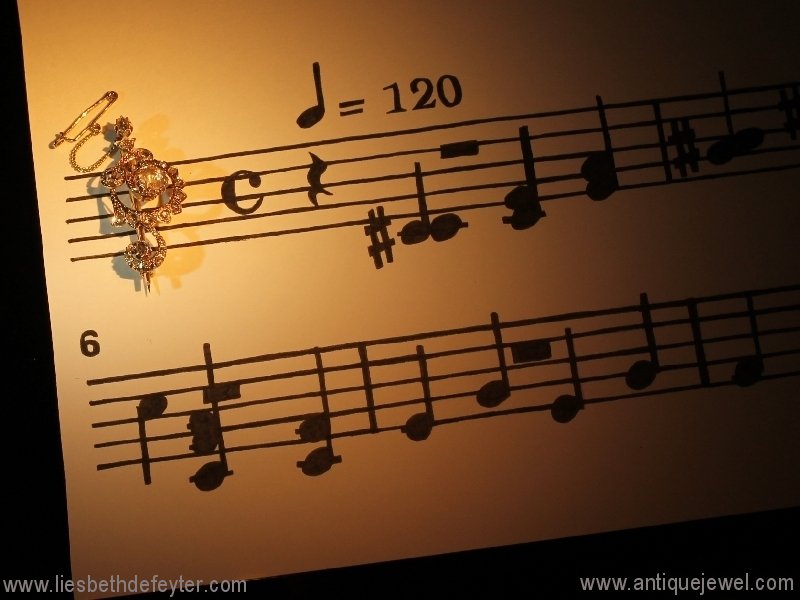 |
Antique Jewelry Present Suggestions
(per type of jewelry and per price)
Dear fellow antique and estate jewelry afficionado,
First of all, we are in the midst of changing our pictures from black background to white background so our excuses if our mailing seems to be a bit messy.
Eleven months a year we try to amuse you with a weekly cute antique jewelry related mail. However, this time of the year we take the liberty of sending you some mails without any special picture or back-ground information on symbolism, style or era. There will be just a list of present suggestions.
Please don't worry, these few mails will be as much "hard marketing" as you can expect from us in a whole year. Rest assured that it will take another year before we will start bragging again about all those beautiful pieces of antique and estate jewelry that can be bought online from us and that it will take only about 2 or 3 working days from the moment of buying to the moment it is delivered at your doorstep.
This time we present you another convienient manner of browsing through our collection! Did you you know that on our site you can select by sort of jewelry and price? Have fun!
Ah! And one more good thing..... Shipping is free!
antiqually yours,
The Adin team
antique jewelry under $1,000
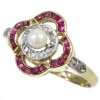 rings up to $1000 |
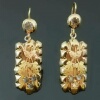 earrings up to $1000 |
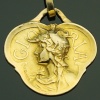 pendants up to $1000 |
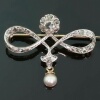 brooches up to $1000 |
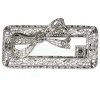 all jewelry up to $1000 |
antique jewelry between $1,000 and $2,500
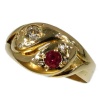 rings up to $2,500 |
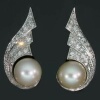 earrings up to $2,500 |
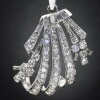 pendants up to $2,500 |
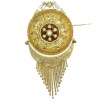 brooches up to $2,500 |
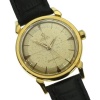 all jewelry up to $2,500 |
antique jewelry between $2,500 - $7,000
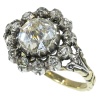 rings up to $7,000 |
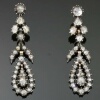 earrings up to $7,000 |
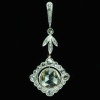 pendants up to $7,000 |
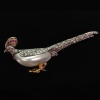 brooches up to $7,000 |
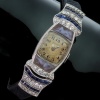 all jewelry up to $7,000 |
antique jewelry between $7,000 - $15,000
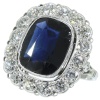 rings up to $15,000 |
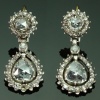 earrings up to $15,000 |
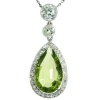 pendants up to $15,000 |
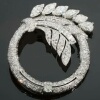 brooches up to $15,000 |
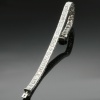 all jewelry up to $15,000 |
antique jewelry $15,000 and above
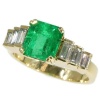 rings $15,000 + |
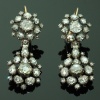 earrings $15,000 + |
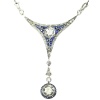 necklaces $15,000 + |
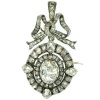 brooches $15,000 + |
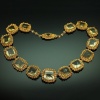 all jewelry $15,000 + |
Once upon a time...
there was an artist visiting The Garden of Adin
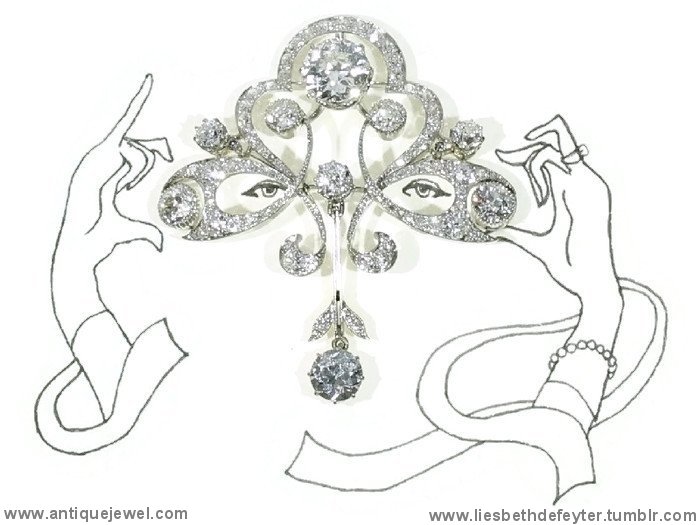 |
Present Suggestions
Antique & Estate Jewelry Per Color
Dear fellow antique and estate jewelry afficionado,
Eleven months a year we try to amuse you with a weekly cute antique jewelry related mail. However, this time of the year we take the liberty of sending you some mails without any special picture or back-ground information on symbolism, style or era. There will be just a list of present suggestions.
Please don't worry, these few mails will be as much "hard marketing" as you can expect from us in a whole year. Rest assured that it will take another year before we will start bragging again about all those beautiful pieces of antique and estate jewelry that can be bought online from us and that it will take only about 2 or 3 working days from the moment of buying to the moment it is delivered at your doorstep.
This time we present you a very convienient manner of browsing through our collection! Did you you know you that on our site you can select the colors that are used in the antique jewelry? Underneath we give you some searches in various colors and objects. Have fun!
Ah! And one more good thing..... Shipping is free!
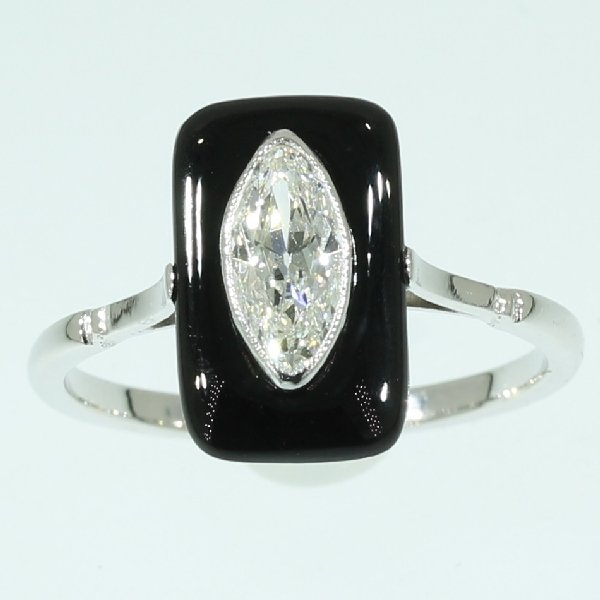 antique rings with black |
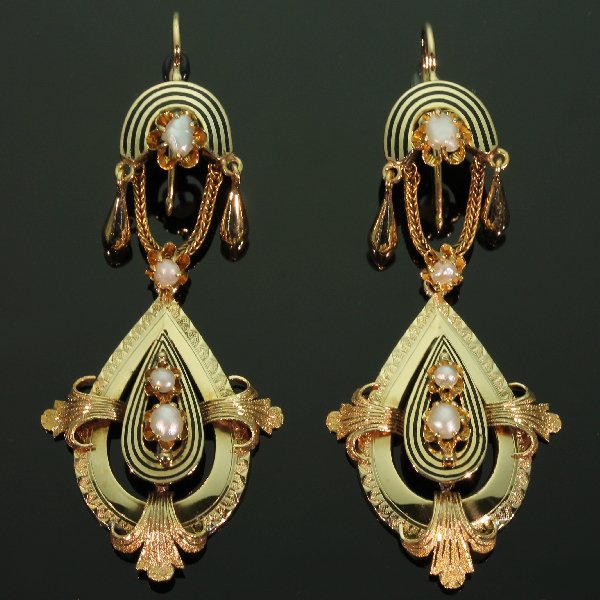 antique earrings with black |
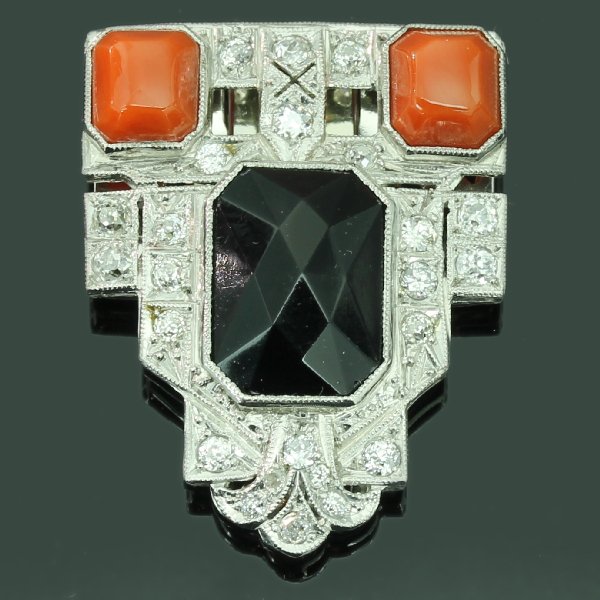 antique brooches with black |
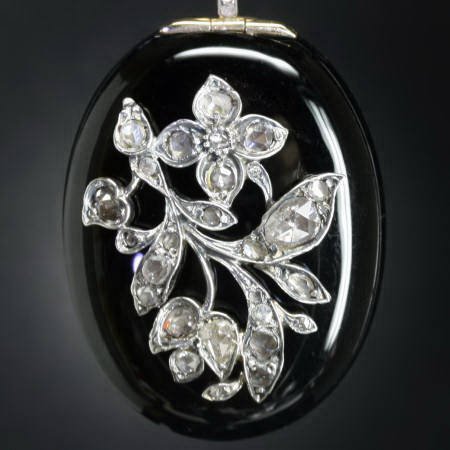 antique pendants with black |
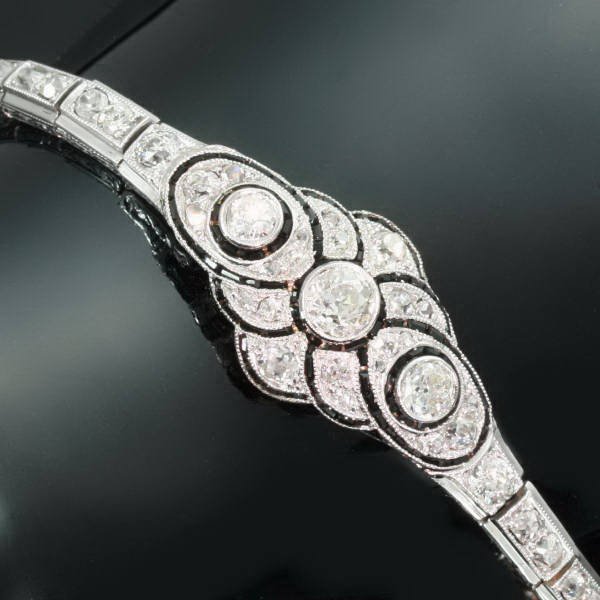 all jewelry with black |
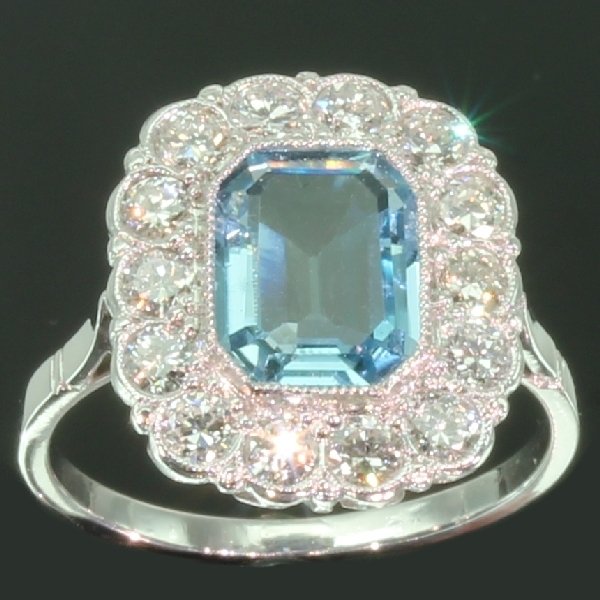 antique rings with blue |
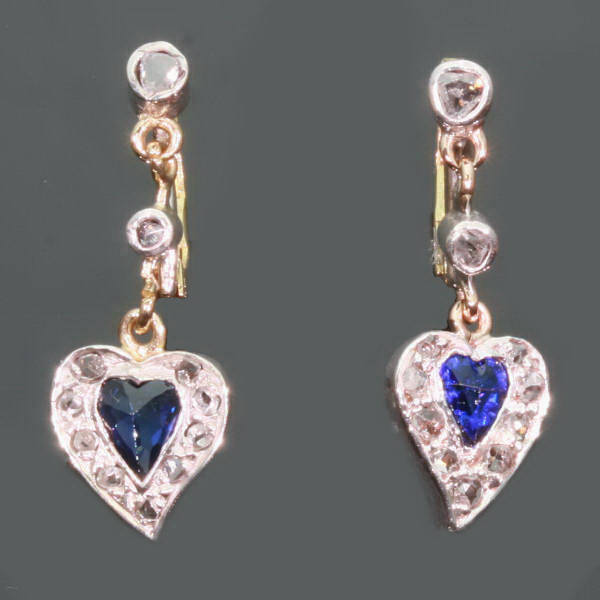 antique earrings with blue |
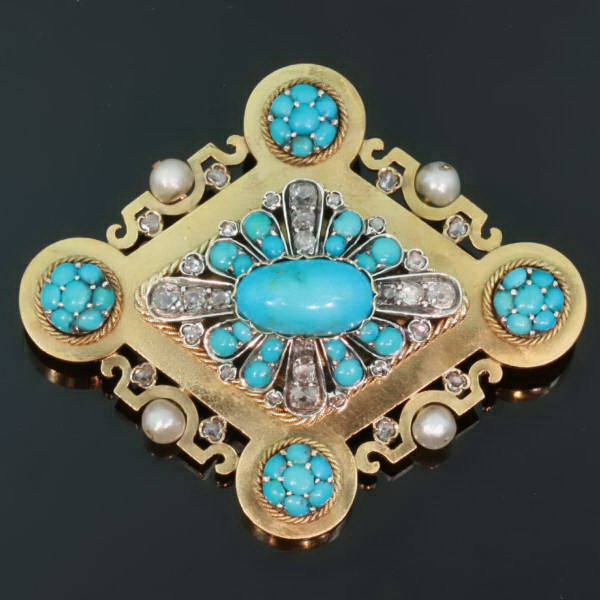 antique brooches with blue |
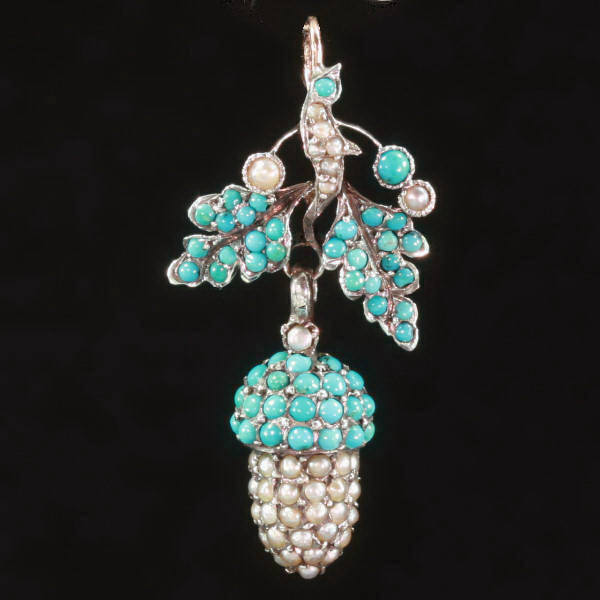 antique pendants with blue |
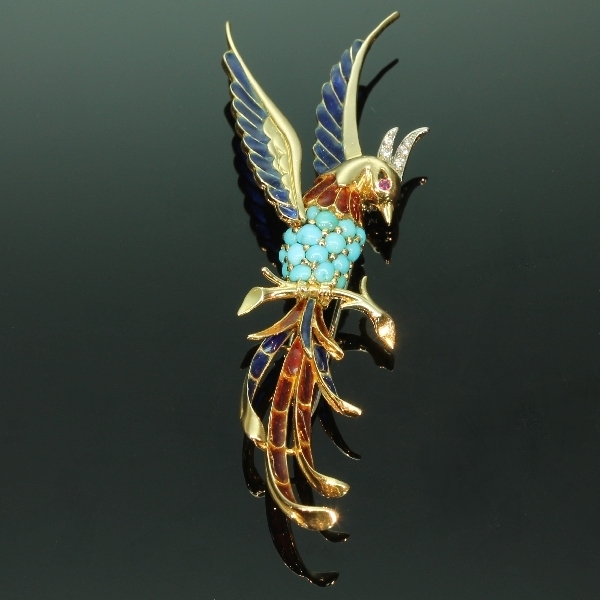 all jewelry with blue |
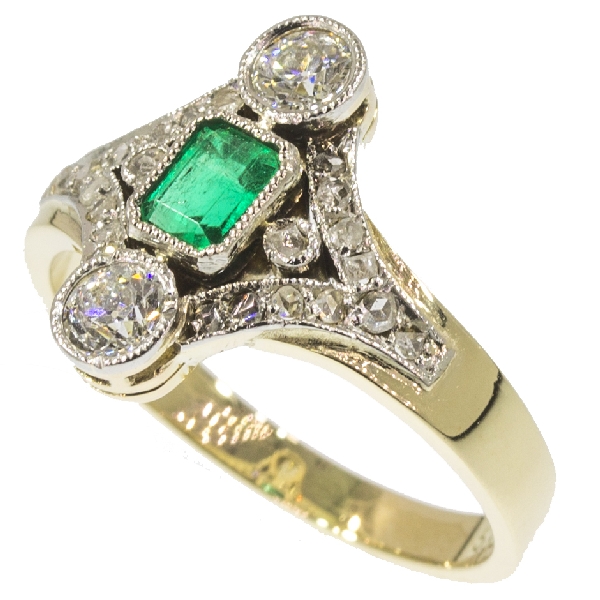 antique rings with green |
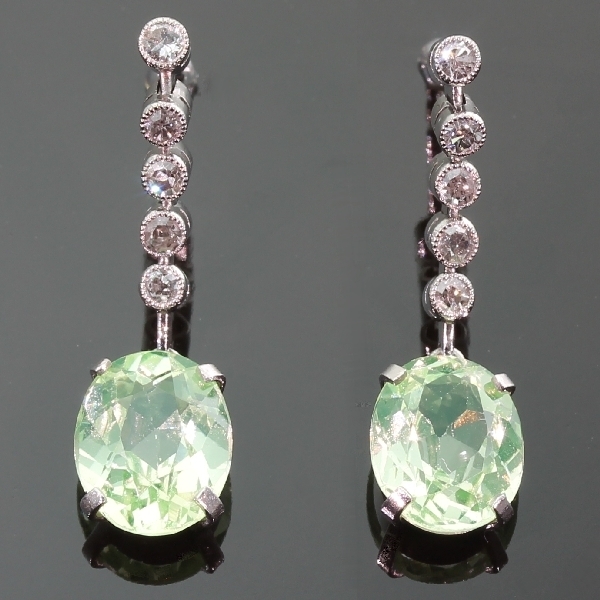 antique earrings with green |
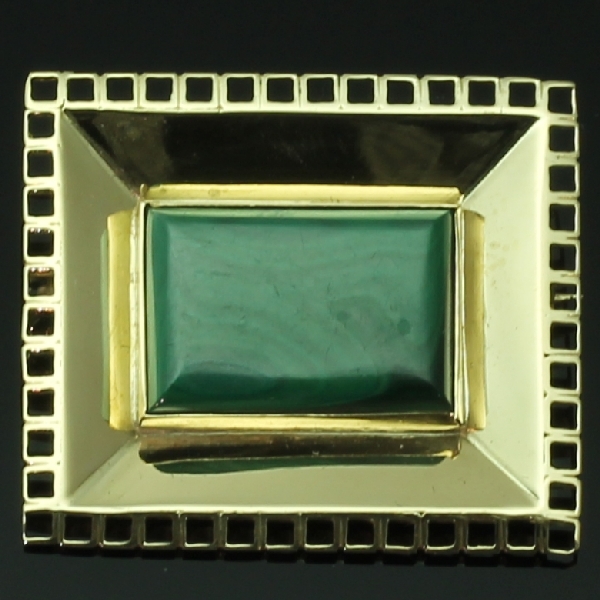 antique brooches with green |
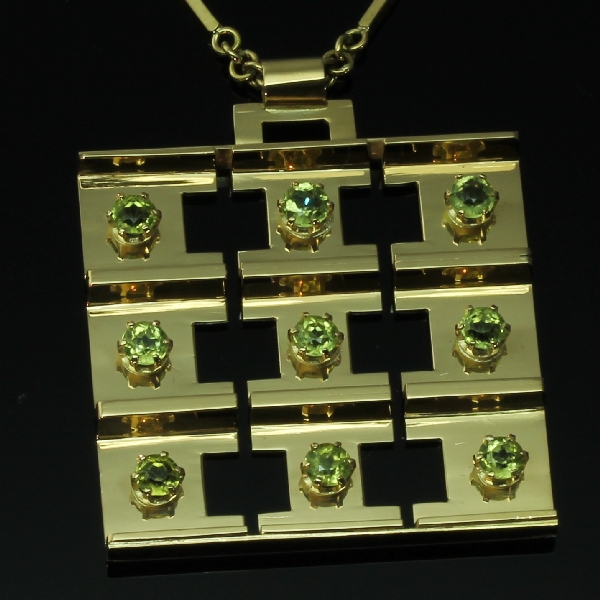 antique pendants with green |
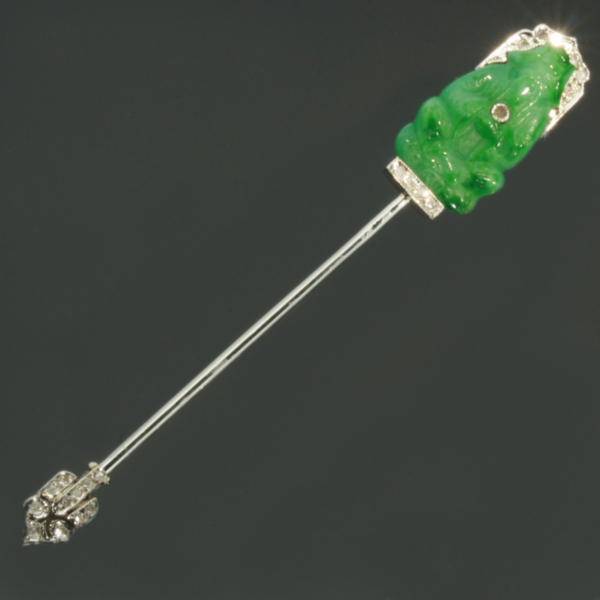 all jewelry with green |
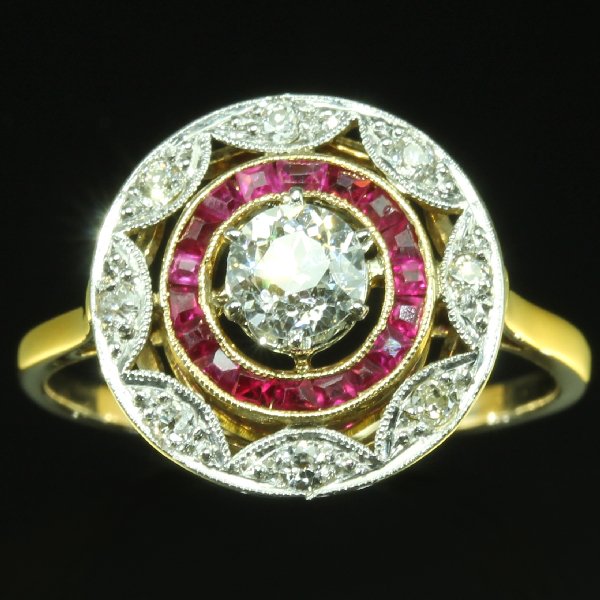 antique rings with red |
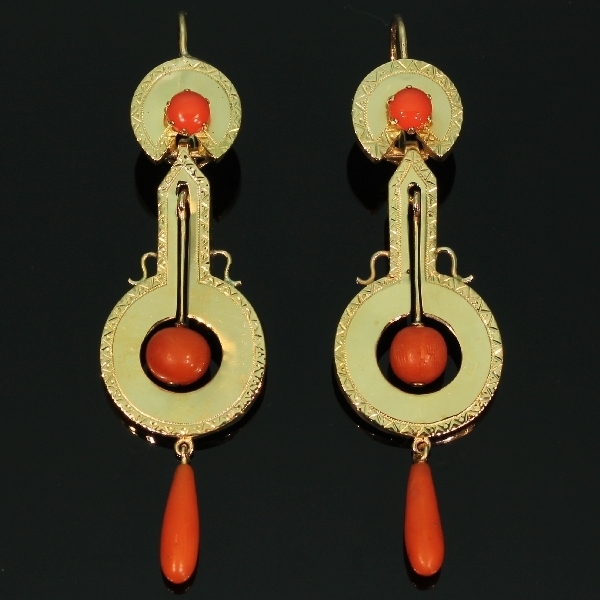 antique earrings with red |
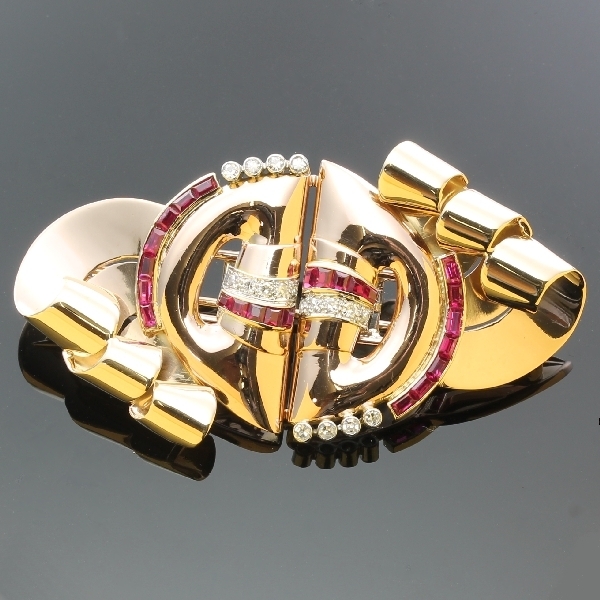 antique brooches with red |
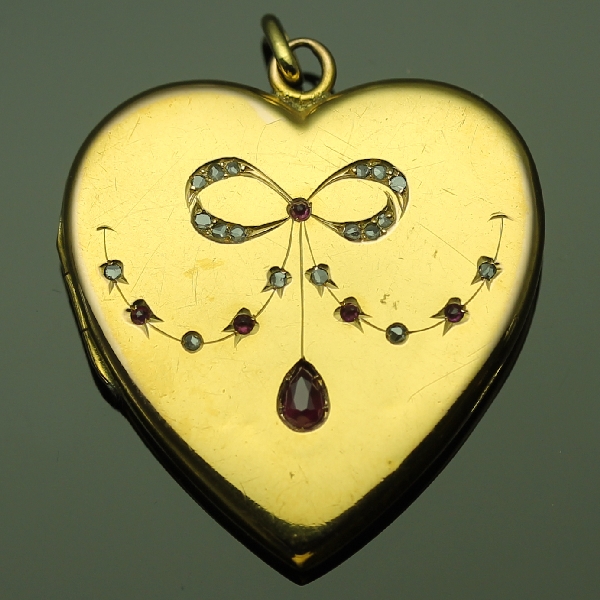 antique pendants with red |
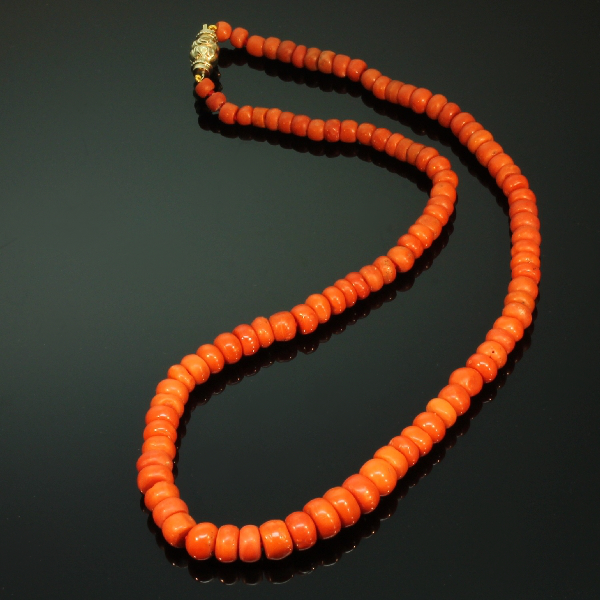 all jewelry with red |
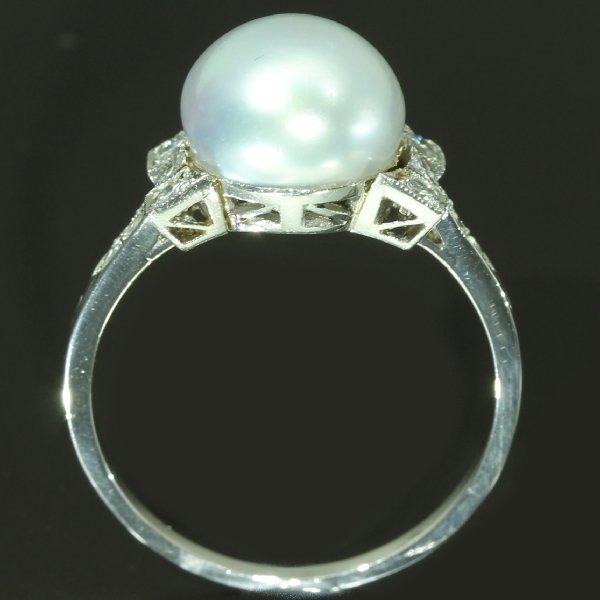 antique rings with white |
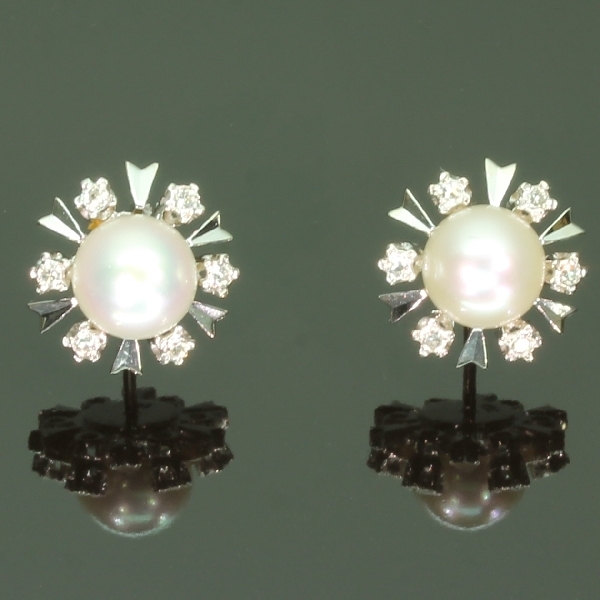 antique earrings with white |
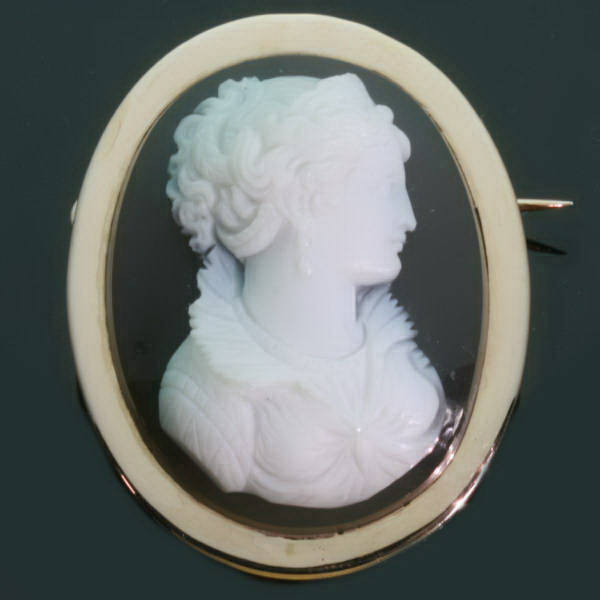 antique brooches with white |
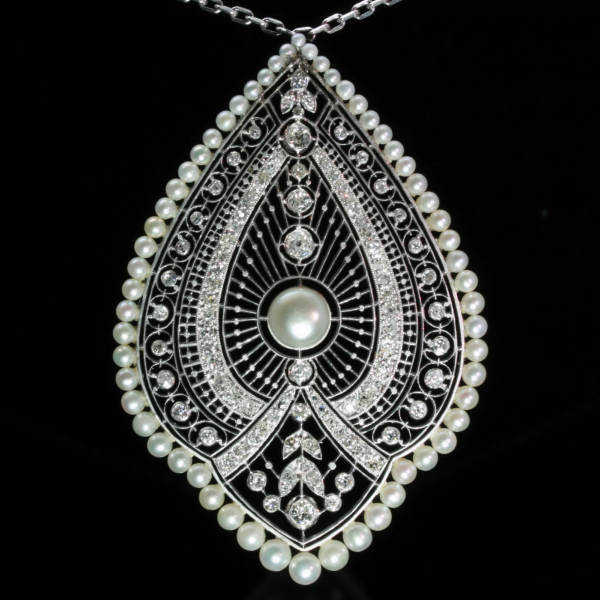 antique pendants with white |
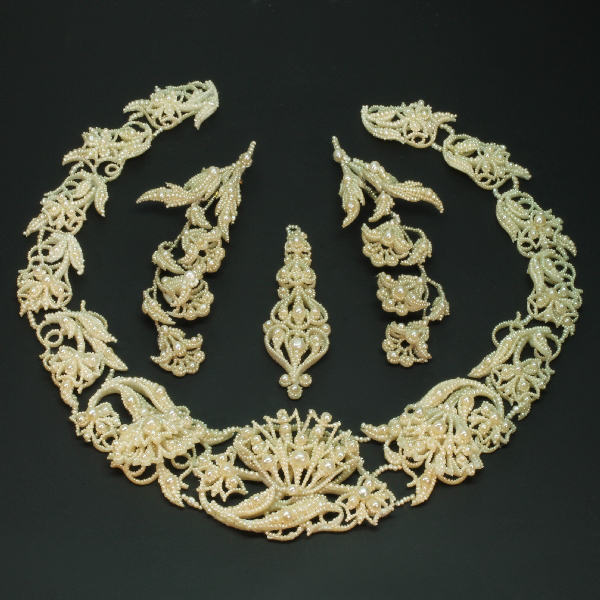 all jewelry with white |
Fashion changes, but style endures...
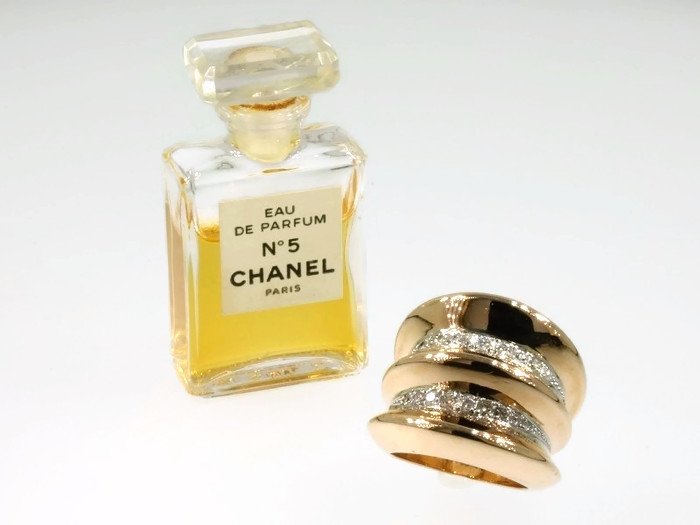 |
(Coco Chanel 1883-1971)
Black cats may prowl,
and pumpkins gleam....
But 15% discount is yours on Adin's Halloween!
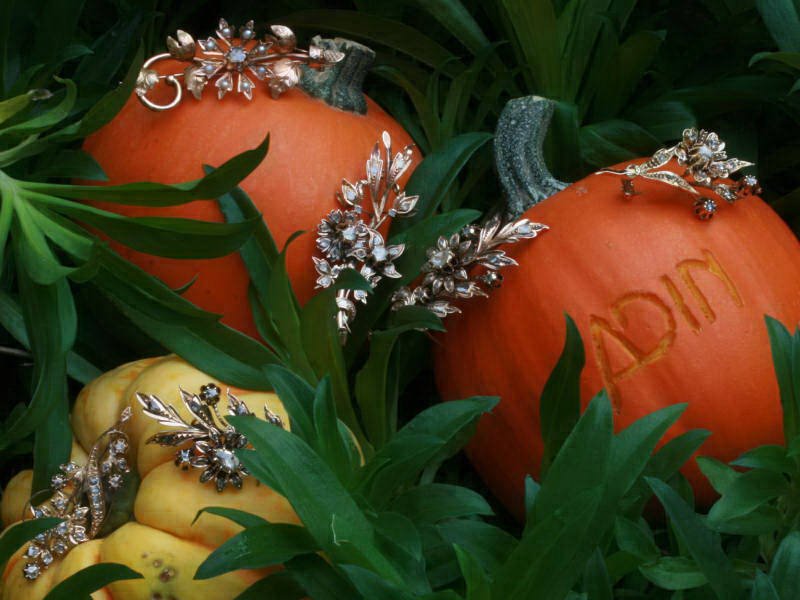 |
15% discount on all our antique jewelry. Our system isn't updated yet to do this automatically so it will be refunded manually by our secretaries after purchase.
Rare extra wide antique wedding bands
from Zeeland in the Southern Netherlands
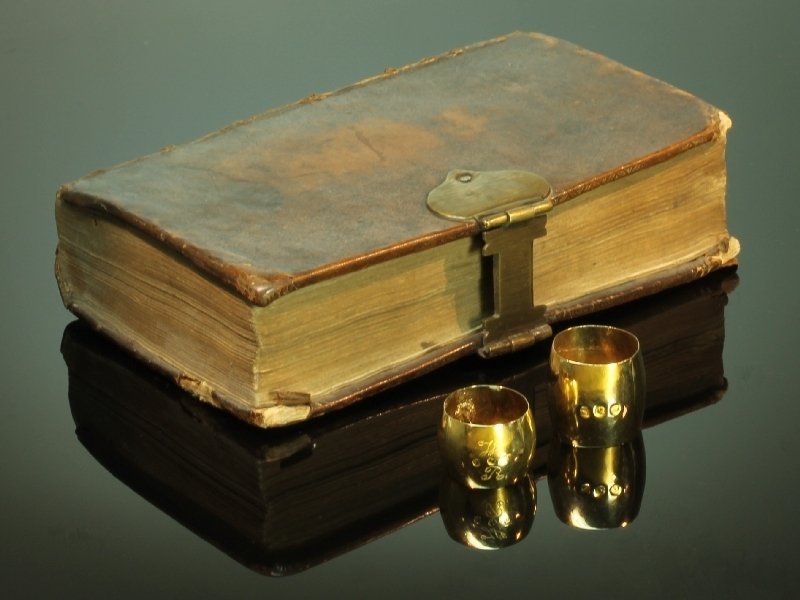 |
These extraordinary wide wedding bands are called "tonnenring" (Dutch for barrel ring). A typical regional piece of jewelry from Zeeland, the Southern coastal part of the Netherlands where every village had its own specific type of jewelry. Even more, every religion had its own typical distinctive differences of wearing and style.
In the county Walcheren this ring came into fashion in the second half of the 19th century (1850-1900). A wide gold smooth wedding band, sometimes engraved with a wreath of leaves and the initials of the bride and groom. It was virtually impossible to wear these rings while working so they were only used to show off when going to church or at holidays and festivals.
On pictures from that time, the hands were held in such a position that all the rings would be in seen on the picture. Such rings are also described in the book "Streeksieraden in Zeeland" (Dutch for "Regional jewelry in Zeeland") at page 76.
Once upon a time...
there was an artist visiting The Garden of Adin
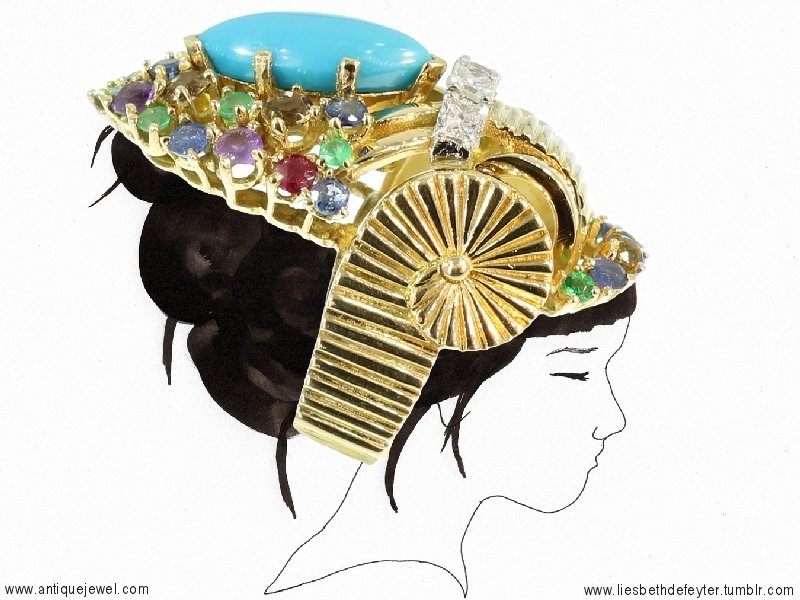 |
Halloween in The Garden of Adin...
Who still dares to buy?
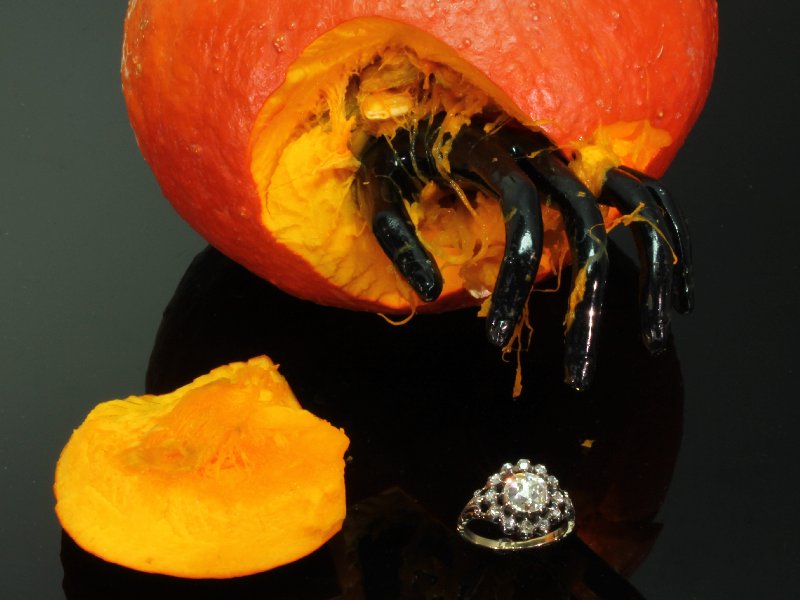 |
Nostalgia for the 19th Century...
Love, diamonds and sweet smells.
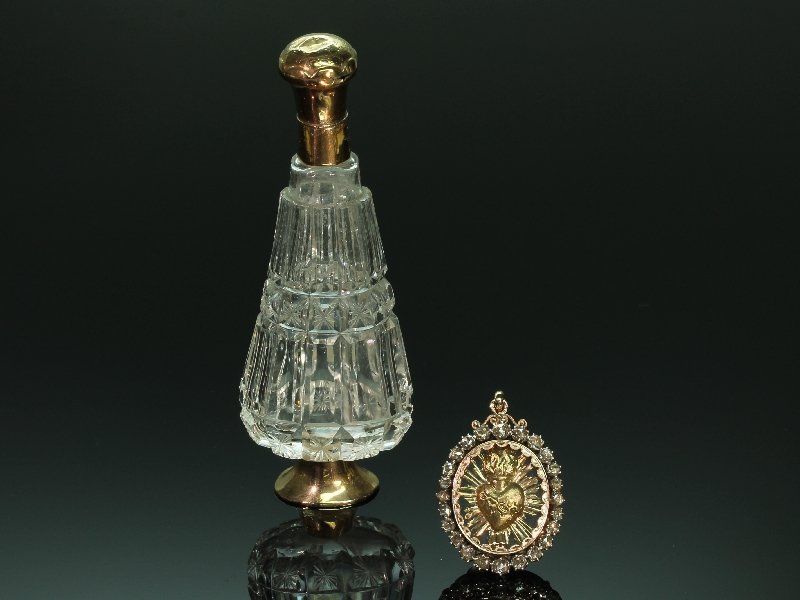 |
Ok, since you insist...
just two more drops!
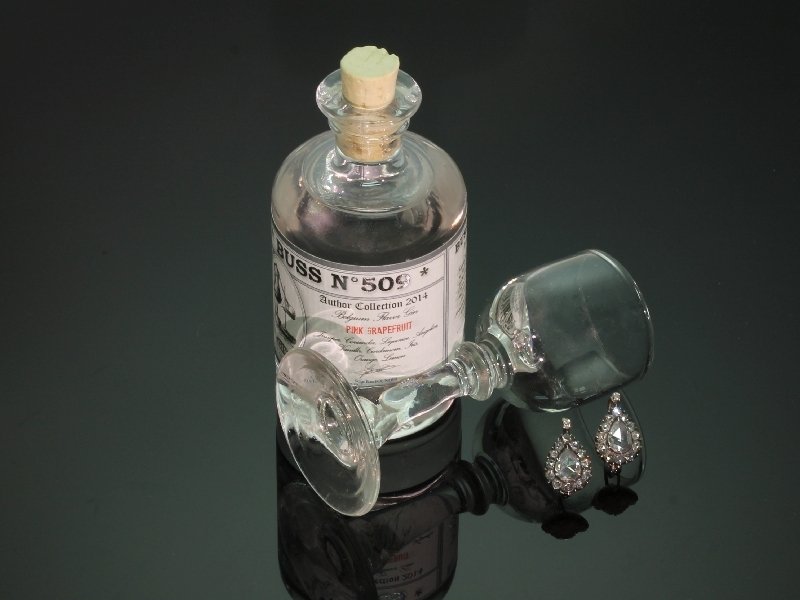 |
Sweet Antiquities From Antwerp
(and still available)
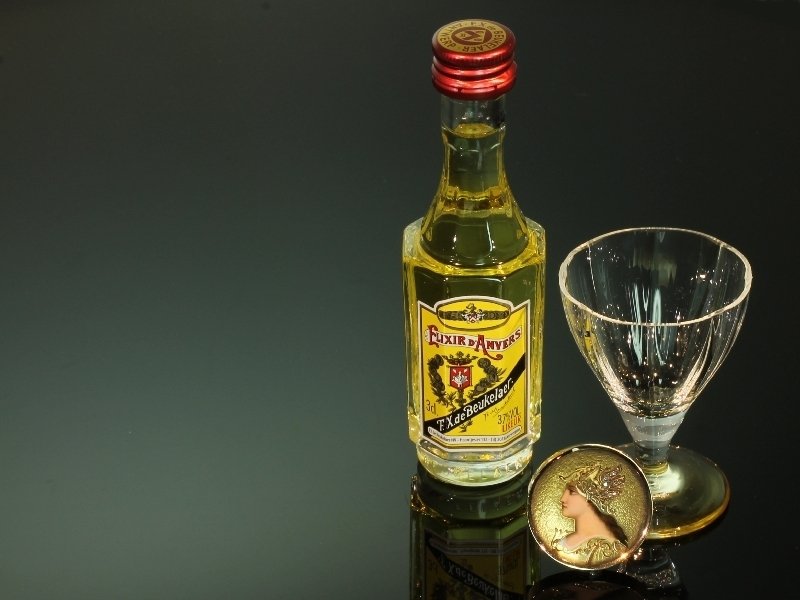 |
Nineteenth Century sweeties from Antwerp. Antwerp, home base of Adin, specialist in Antique Jewelry and home base to "Elixir d'Anvers", a typical Antwerp wholesome liqueur that has been in existence since 1863 and is still being distilated and available. And so is the Antique Jewelry that Adin has pictured here.
Adin Proudly Presents:
Adin's Vintage Select Hand Care Products
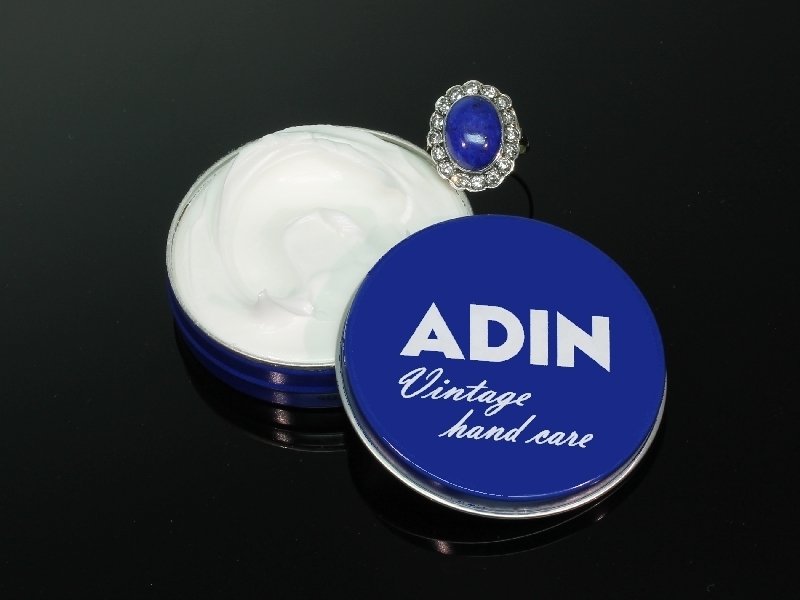 |
With many years of experience in the international body adornment market, Adin turns its focus to personal vintage hand care. It is with great pride that Adin introduces its line of Vintage Select Hand Care Products.
This meticulously selected collection was created using only totally natural vintage ingredients and NOT tested on animals. Even more, Adin's Vintage Select Hand Care Products are perfectly safe to wear on either hand and an absolute joy for both hand and eye!
In My Blue Heaven
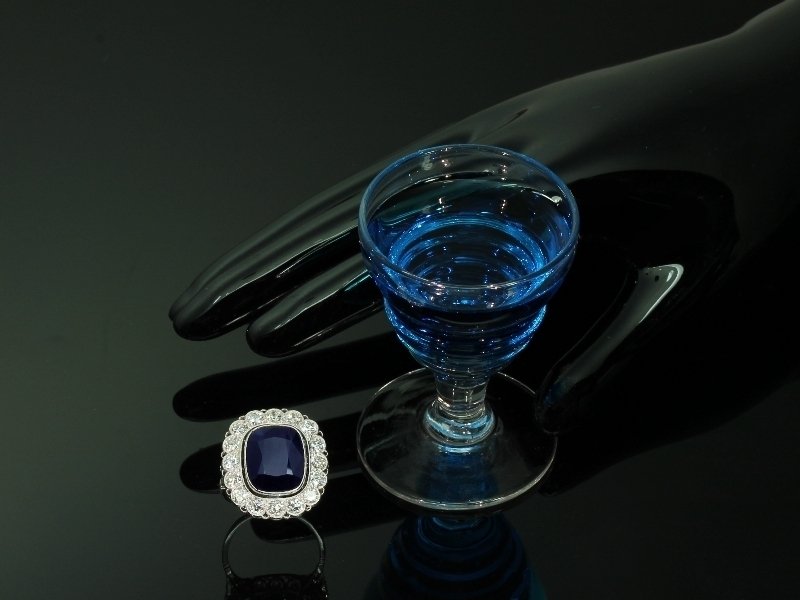 |
Belle Epoque Sapphire Ring
Summer in The Garden of Adin
Where even the pins on a cactus are pretty.
 |
Diamond and ruby Art Deco bar brooch
Summer in The Garden of Adin
Where tendrils reach out as far as the Baroque era.
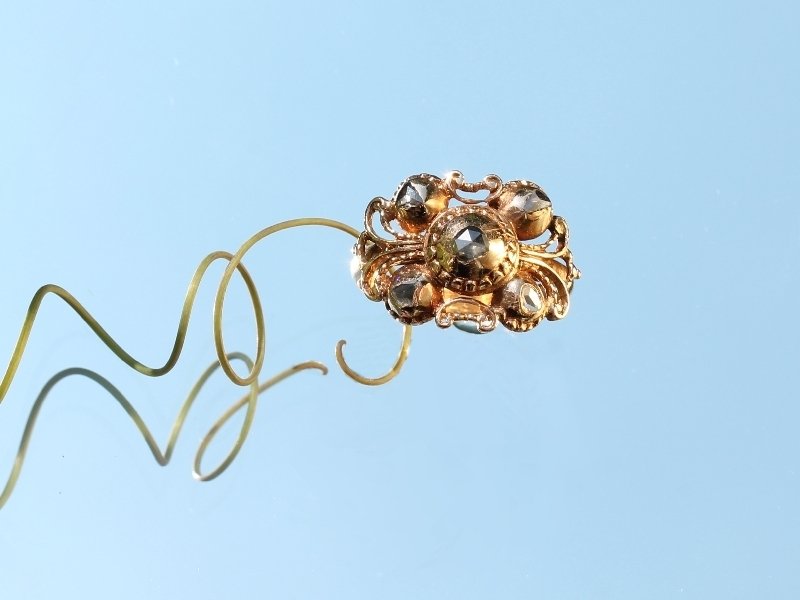 |
Antique Baroque Diamond Ring
Lovely Summer Bouquets
in The Garden of Adin...
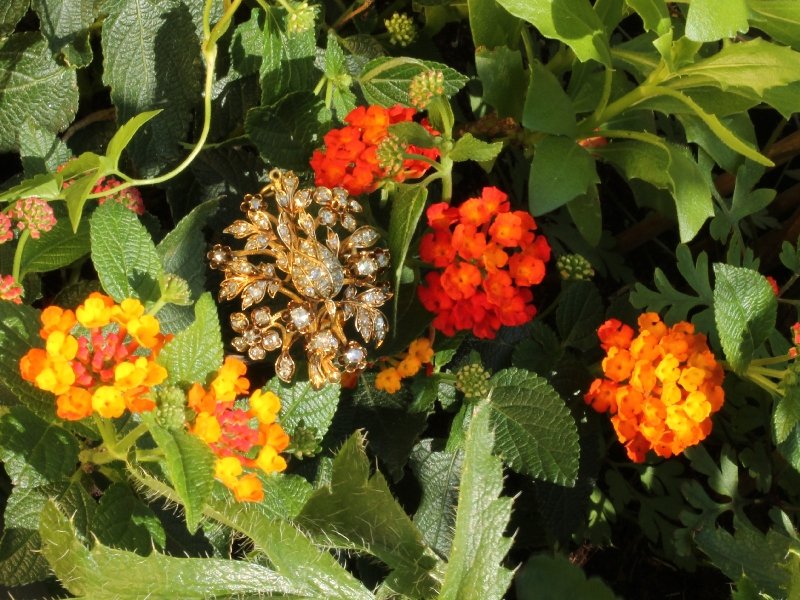 |
Victorian bouquet brooch with rose cut diamonds
Heavenly Summer in The Garden Of Adin
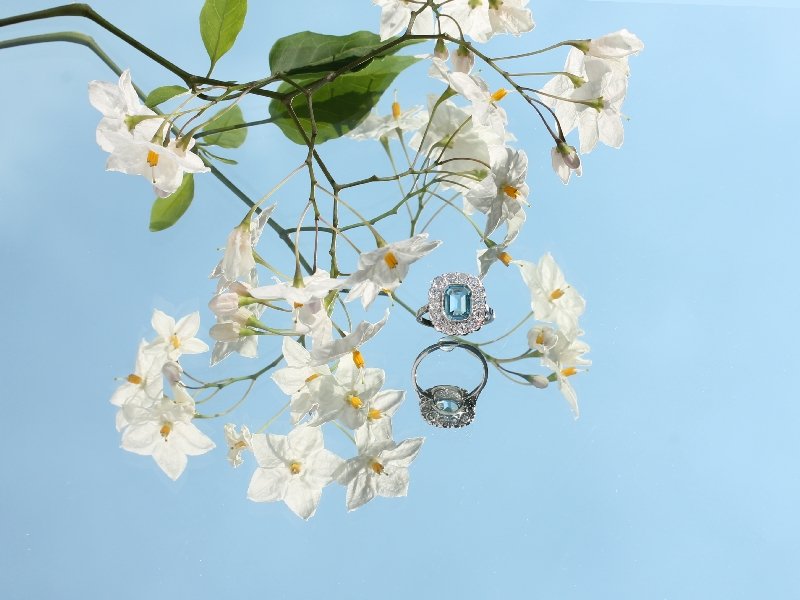 |
Heaven, I'm in heaven....
And my heart beats so
that I can hardly speak
And I seem to find the happiness I seek
just by browsing through
Adin's antique jewelry boutique
Summer in The Garden of Adin...
A time to relax and enjoy
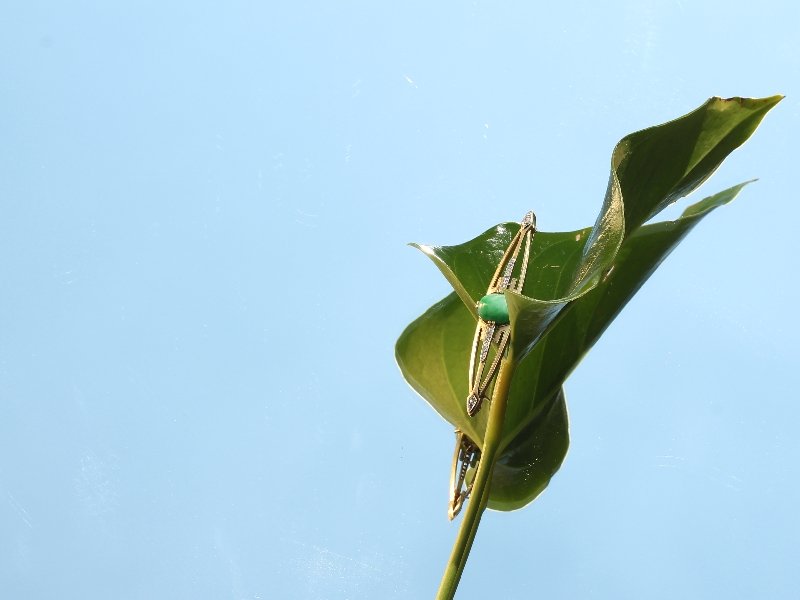 |
Art Nouveau bar brooch with diamonds and jade
(Jugendstil)
In The Garden of Adin...
Time flies, and bejeweled flies too
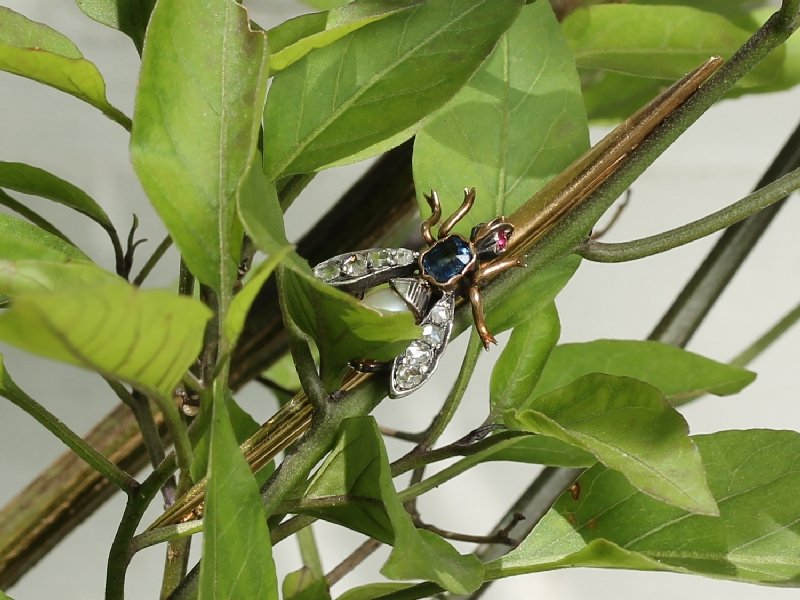 |
Vintage gold bar brooch with bejeweled fly
Summer in The Garden Of Adin
Perfect weather to play hide and seek
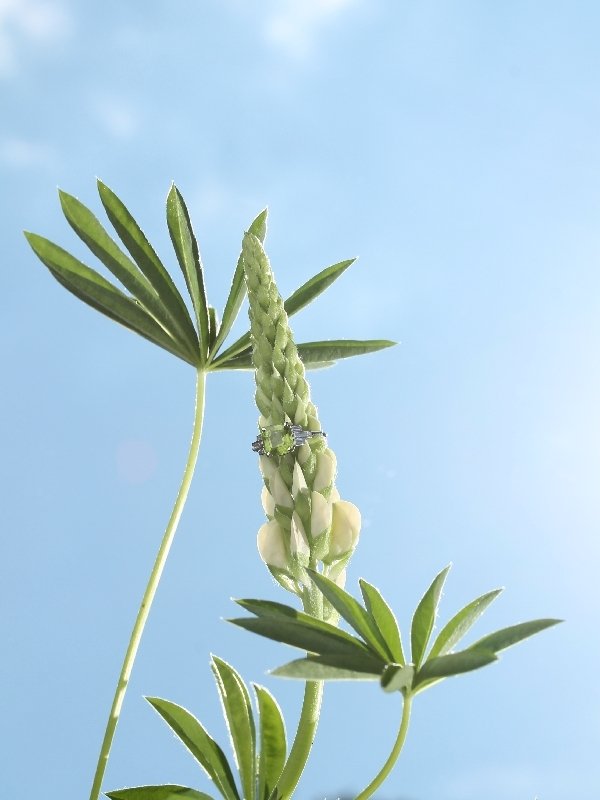 |
Art Deco ring with peridot
Antique Russian Brooch
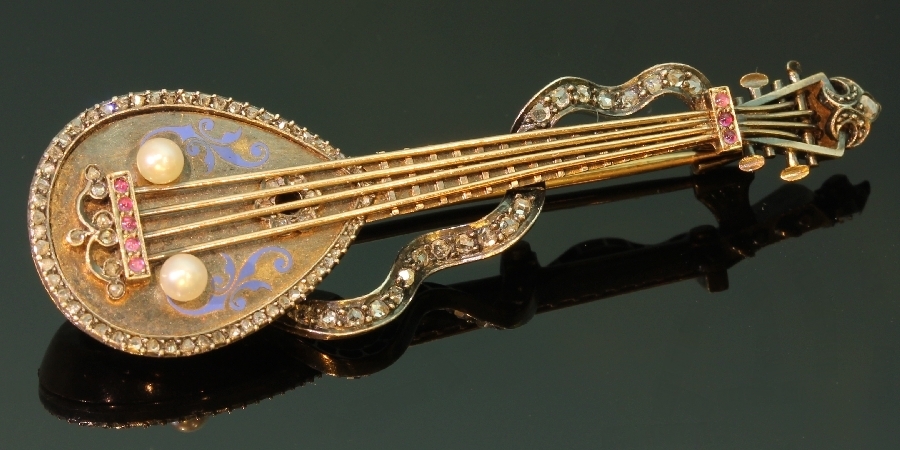 |
An exquisite depiction of a Russian mandoline or domra brooch. Rendered in a combination of 14K red gold and silver and features diamond, ruby and pearl details as well as enamel inlay ornamentation. The body of the mandoline and the ribbon attached are executed in silver, set with a row of diamonds as are the soundhole and the decorations under the bridge. The top and bottom bridges are decorated with cabochon ruby bridgepins. Next to the chords on the body, two seed pearls and two blue enamel inlay details are added.
This antique jewel bears pre-revolution Russian hallmarks for 14K gold. Hallmarked in Transcaucasia, known because of the letter 'O' in the hallmark. This hallmark was used between 1908 and the Russian Revolution in 1917. Furthermore we found a French control mark that indicates that the piece has been imported in France....
If this piece could only talk... What amazing story would we hear.
Art Nouveau Brooch
Symbolizing a new beginning.
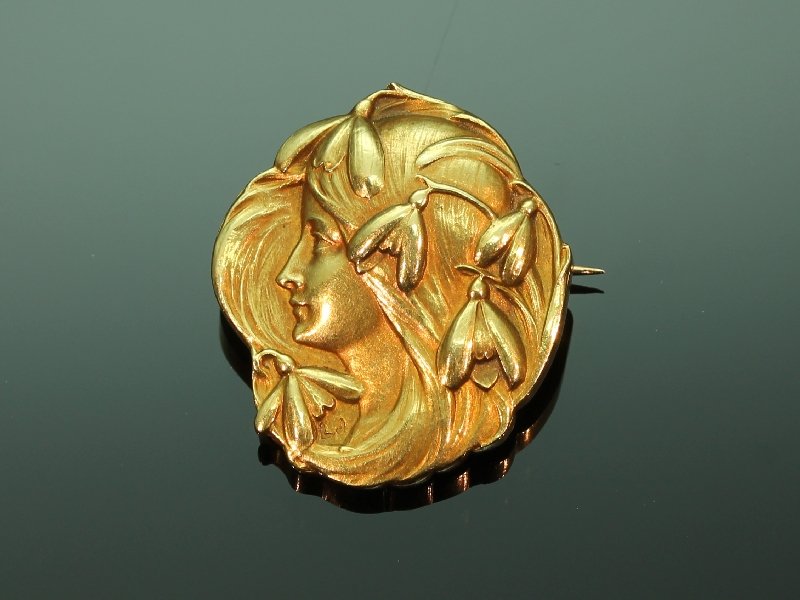 |
Some info on the style Art Nouveau:
Art Nouveau (French for New Style) is an international movement and style of art, architecture and applied art - especially the decorative arts - that peaked in popularity at the turn of the 20th century
(1890–1905). The name "Art Nouveau" is French for "new art". It is also known as Jugendstil, German for "youth style", named after the magazine Jugend, which promoted it, and in Italy, Stile Liberty from
the department store in London, Liberty & Co., which popularised the style, and in Holland as "Sla-olie-stijl", Dutch for "salad oil style" after a advertisement poster for this product that was made in
that style.
Some info on the flower used as ornament:
Snowdrops - At the end of the winter when nature seems dead and the earth shrunk by cold, as an emblem of promise and consolation, the snowdrop is the first to announce spring and long bright days to come.
A cute history:
The Russian Empress Catherine The Great (1729-1796) was a great lover of snowdrops. Once she installed a guard to save a particularly large snowdrop to prevent it from being plucked. The guard post
remained there even when the reason why was long forgotten. Many decades later, Emperor Alexander II (1818-1881) noticed this guard post and wondered why there was a guard post while there
was nothing to protect, it was then that the original reason was recovered.
World Cup Football Thoughts:
The formula for my happiness...
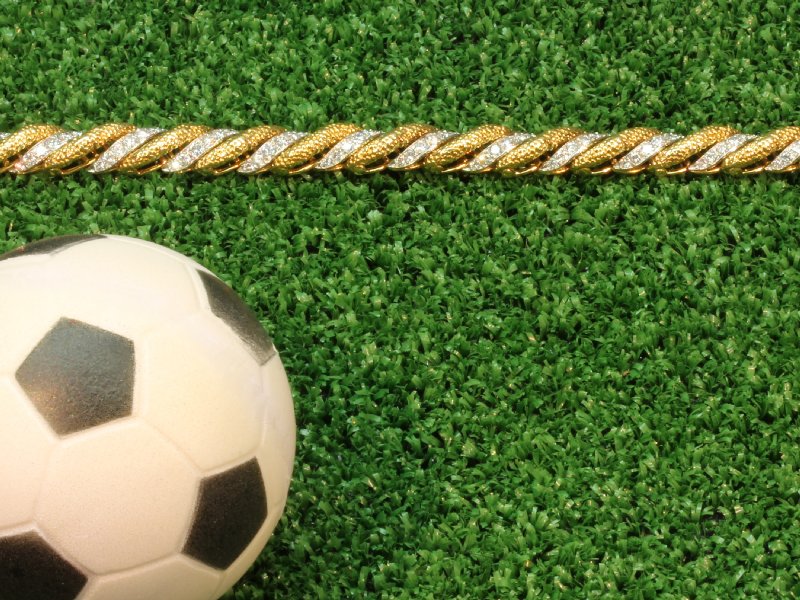 |
... a yes, a straight line, a goal.
Friedrich Nietzsche
Philosopher 1844-1900
(slightly adapted)
Antique jewelry in literature:
Belle Epoque diamond bracelet by Emile Olive
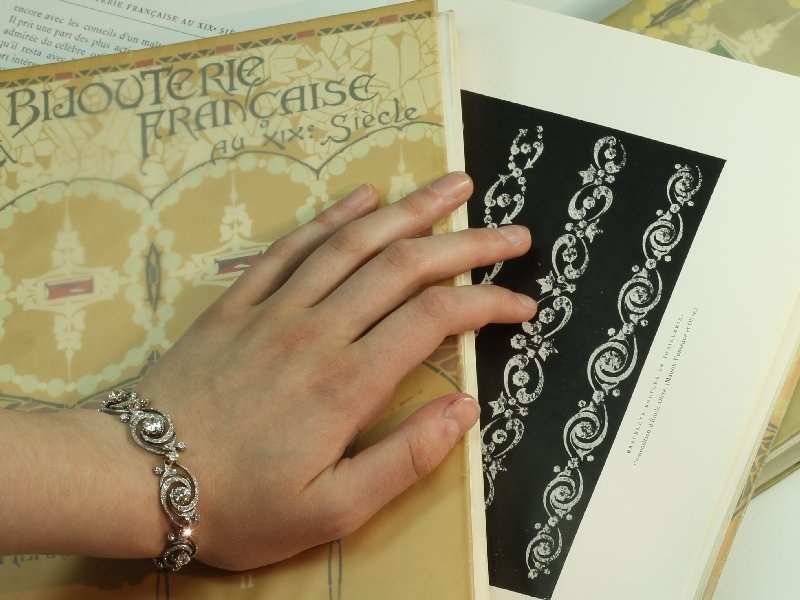 |
Magnificent, stunning and superb do not adequately describe this priceless Emile Olive bracelet which is in pristine condition! It is in typical Belle Époque style with Art Nouveau influences. Normally rings would be adorned with this motive, and for us it was the first time to find this motive in a bracelet. It includes 9 large old European cut diamonds weighing 3.40 crt and an enormous 7.20 crt in total (rose cut diamonds not included)!
This very bracelet is depicted at page 533 in the "Bible of Antique Jewelry" namely "La Bijouterie Française au XIXe Sieècle by Henri Vever, part two, Second Empire 1850-1870" printed in Paris in 1908. This book was translated to English in 2001 and is called "Henri Vever - French Jewelry of the Nineteenth Century". The bracelet is depicted on page 1025 of the English version.
Antique jewelry in literature:
17th Century Antique Portuguese Pendant
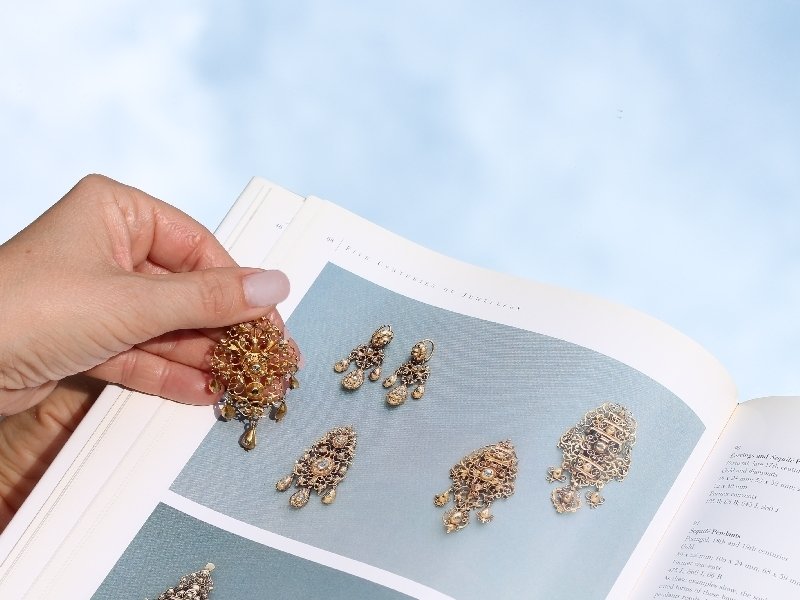 |
Antique Portuguese sequile style pendant featuring 33 rose cut and senaille diamonds held in foiled gold setting. The gold openwork surround features a sinuously scrolling foliate design in a lozenge shape traditional for sequille-style jewellery and features five teardrop shaped pendants, balancing the intricate design. The bigger diamonds are rose cut and the smaller diamonds are senaille cut.
According to the experts of the Victoria & Albert Museum, it is characteristic of Iberian gold jewellery at this date that the gold settings nearly enclose the smaller diamonds. Pictures of similar pendants can be found in "A Sparkling Age: 17th Century Diamond Jewellery” p 215 - by the Diamond Museum in Antwerp - published 1993 and in "Five Centuries of Jewellery" p 45 - by The National Museum of Ancient Art, Lisbon - published 1995.
Art Deco Bar Brooch
Art deco jewelry in its utter beauty
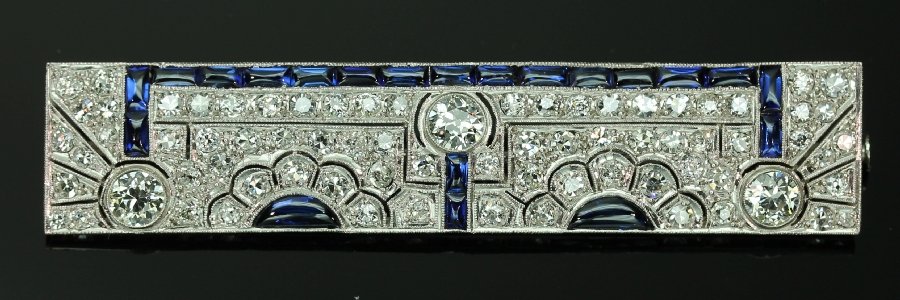 |
1920’s platinum, pave set diamond and sapphire brooch. The design features three large old European cut diamonds interspersed by two half-moon cabochon cut sapphires surrounded by diamond set millegrain borded openwork flower petals. A network of millegrain openwork lines and a row of 19 small rectangular cabochon sapphires connect these design elements.
Rose Cut Diamonds
another "romantic" explanation...
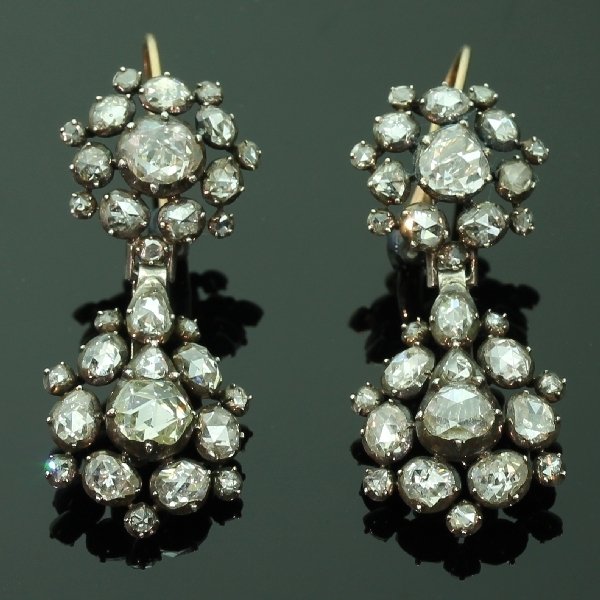 |
Once upon a time... a long long time ago, soirées (French for... "soirees") were illuminated by romantic glimmering candle lights, smelly oil lamps and asphyxiating smothering torches. And all jewelry set with rose cut diamonds were shining and sparkling as beautiful as can be, and all the people were happy (deep sigh)...
To many antique jewelry experts, the reason why goldsmiths of those days used rose cut diamonds in antique jewelry was so the jewels would sparkle better in the candle light. We however, we wonder in what other than the light of candles, oil lamps and torches rose cut diamonds had to sparkle, since there wasn't any electricity yet. Fact is that because of the irregularity of the polishing of the diamonds of those days, they have a nicer, less predictable, sparkle than new cut diamonds which we find "a bit cold".
An arty mind is a joy forever...
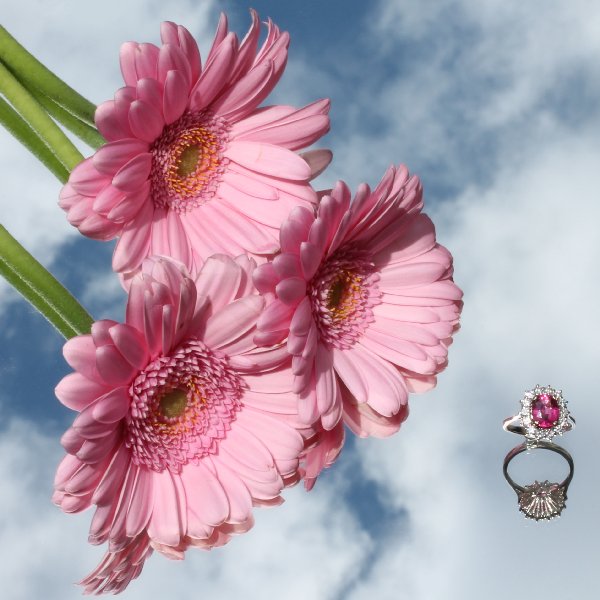 |
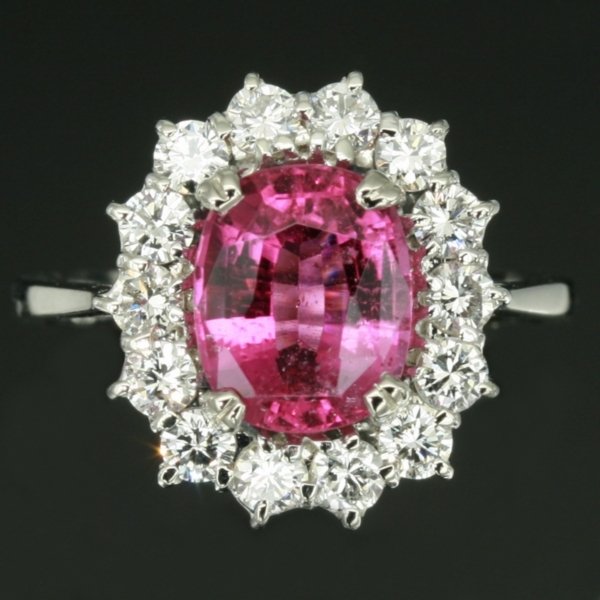 |
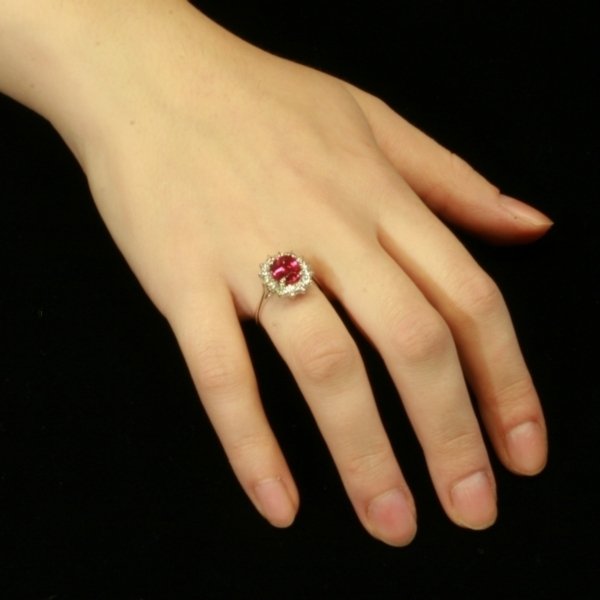 |
|
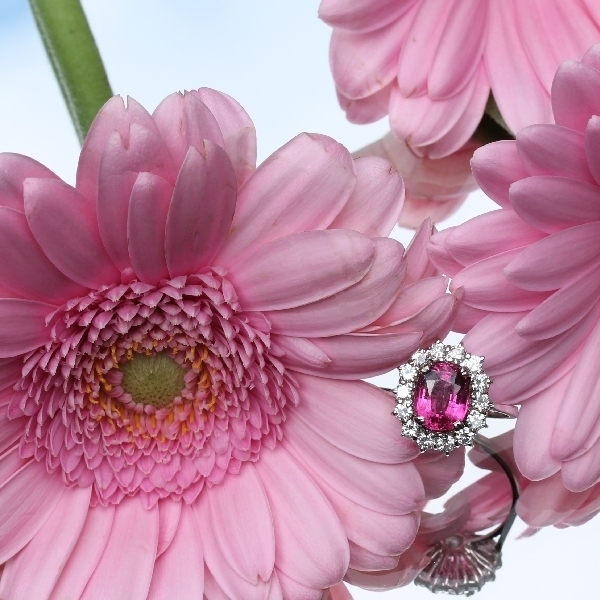 |
|
| Click here for more info on this pink tourmaline diamond ring. | |
Aloe Vera from The Garden of Adin
Wear it 100 years with our antique jewelry...
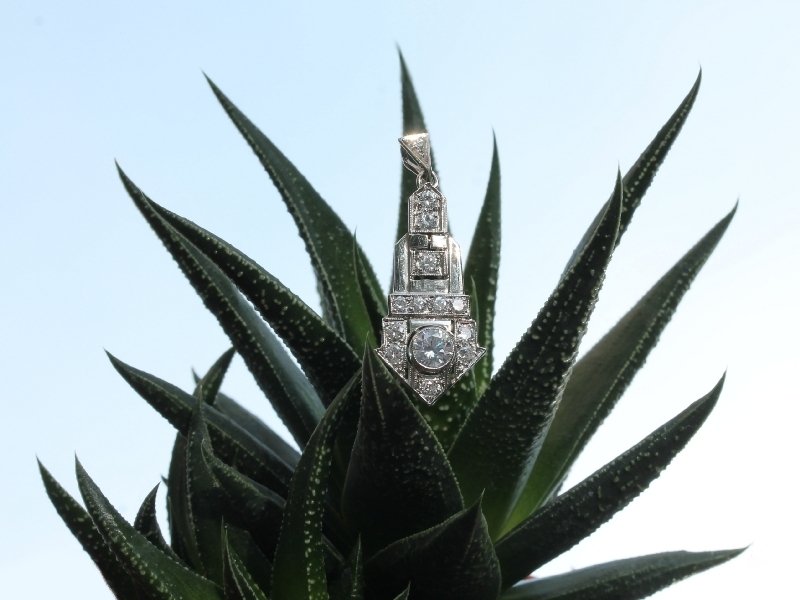 |
And you will live long!
Another planet with rings found!
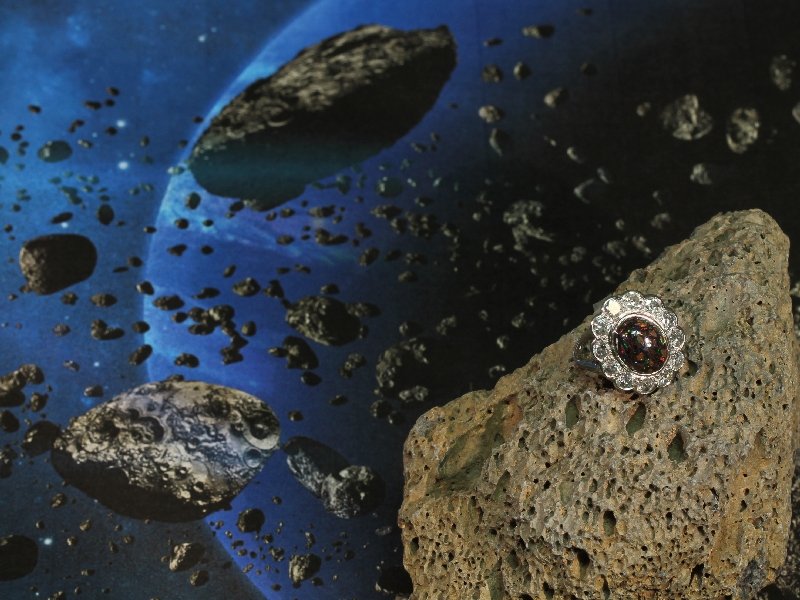 |
Antwerp May 11, 2014 - Scientists at The Garden of Adin have added another celestial body to the short list of objects in our solar system that have rings: a remote asteroid that orbits between Saturn and Uranus in the outer solar system. Researchers published a study in the journal Nature showing evidence of rings.
Chief of Adin's Heavenly Jewelry Department for NASA Mr. Elkan Wijnberg said the discovery came as a complete surprise. "We weren't looking for rings and didn't think small bodies like this asteroid had them at all. We are in extensive negotiations with NASA to visit this near-Earth asteroid and re-direct it together with its antique ring back to Earth." he said in a statement.
We just like to keep it to our roots.
for no particular reason...
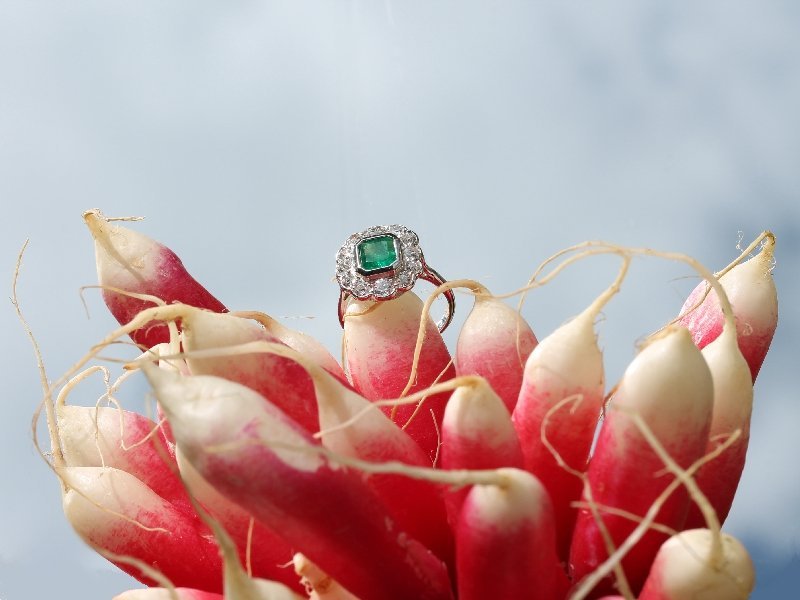 |
...
Jewelry suitable for outdoor games
like playing domino in open air cafes in Paris...
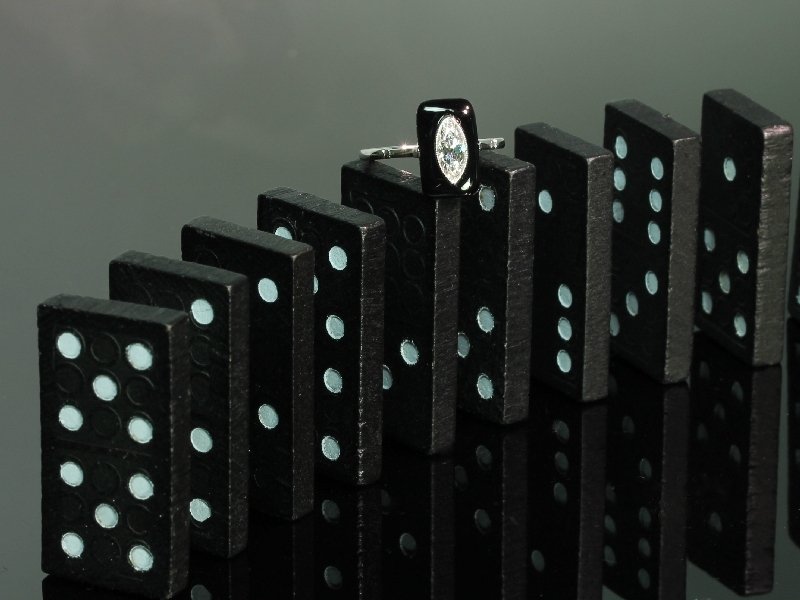 |
(Inspired by Oscar Wilde)
The Adin way of decorating eggs
Easter fun in The Garden of Adin
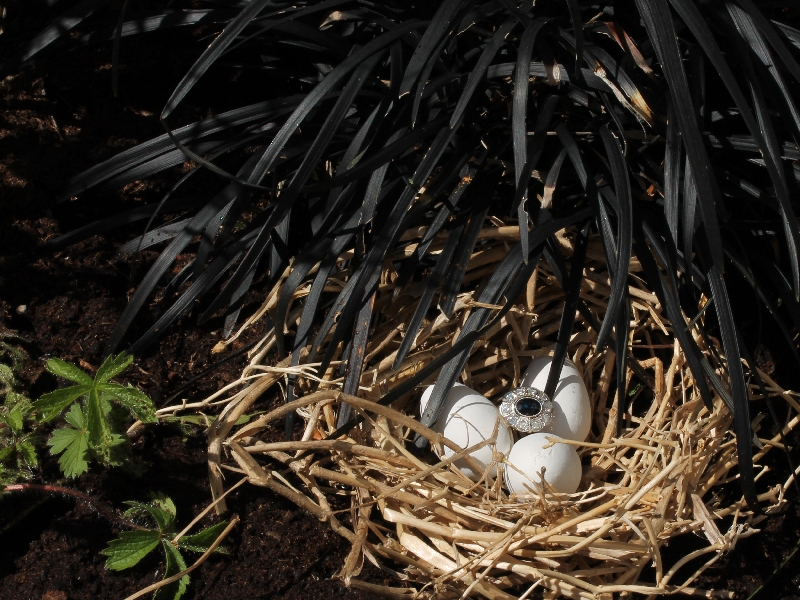 |
The History of Adin's Easter Egg Tradition - In the Garden of Adin the tradition of decorating eggs with antique and estate jewelry is an ancient one. These eggs, which may be left by the Easter Bunny, are hidden for women to find on Easter morning. They may also be put in a basket filled with straw to resemble a bird's nest. The exact location of The Garden of Adin is kept a well hidden secret, except to those who are lucky enough to be on Adin's mailing list.
Release new atomic clock
Ground shaking consequences for Antique Jewelry Trade!
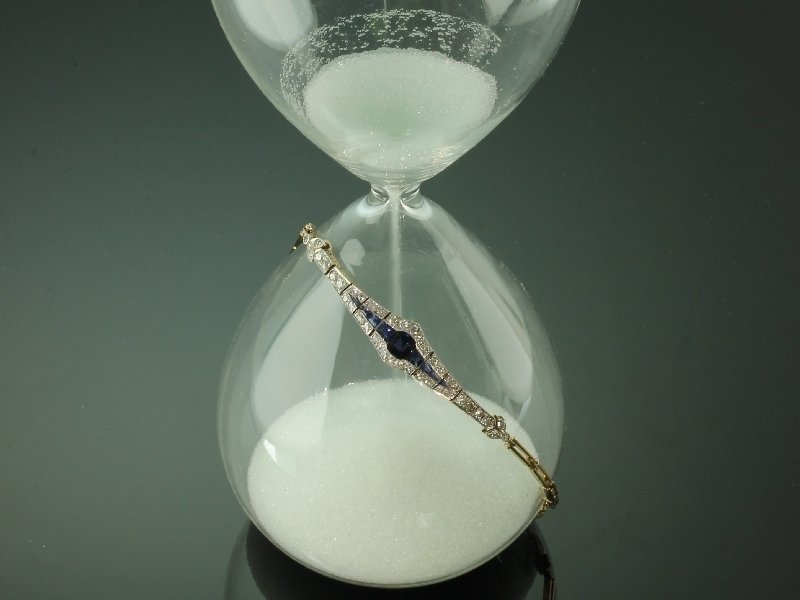 |
Antwerp April 13th, 2014 - Timekeeping, which was already a pretty precise science involving lasers and atomic particles, just got even more exact. A new atomic clock, so accurate it will lose or gain only one second every 300 million years, was unveiled Thursday by the National Institute of Standards and Technology, a branch of the U.S. Department of Commerce. (source CNN).
"With the release of the new atomic clock not only can we measure more accurately the time we live in but it allows us to date the age of our Antique Jewelry more precisely." said Mr. Elkan Wijnberg, chief engineer at Adin's Institute of Styles, Standards and Technology.
He continues: "Imagine the thrill we had when we realized that the Art Deco period was a staggering 0.00003 nanoseconds longer ago than we always thought." And he continues: "We are not 100% sure yet, and more tests have to be done, but we have strong indications that other styles are also importantly effected by this new clock. History books might have to be re-written!"
Adin's egg-cellent collection
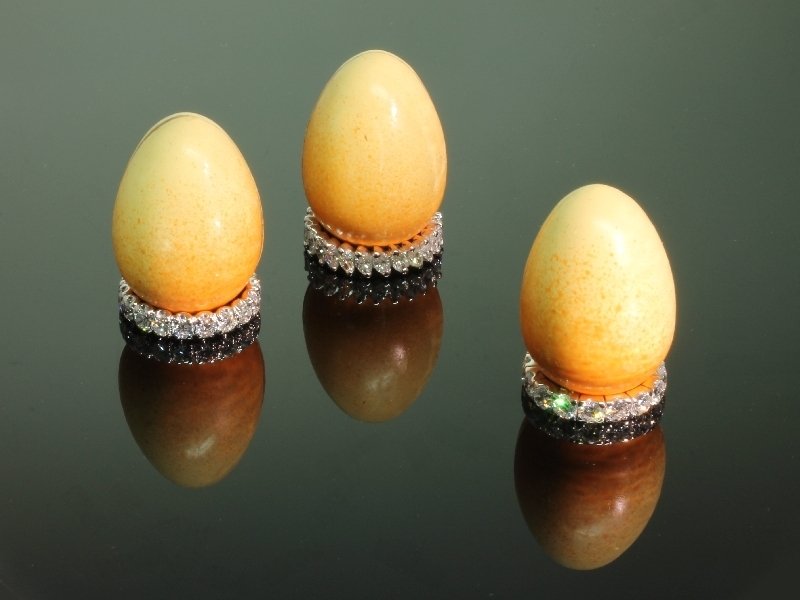
|
We proudly present:
The Adin dual-usage Easter egg-cup ring! Simple and easy to use. It can hold practically every little chocolate egg and the same time makes for a great present as eternity band. It's amazing and most probably going to be found on many ladies' wish lists. It's definitely the most sophisticated multi-usage jewel we have seen in years.
Let us color your day...
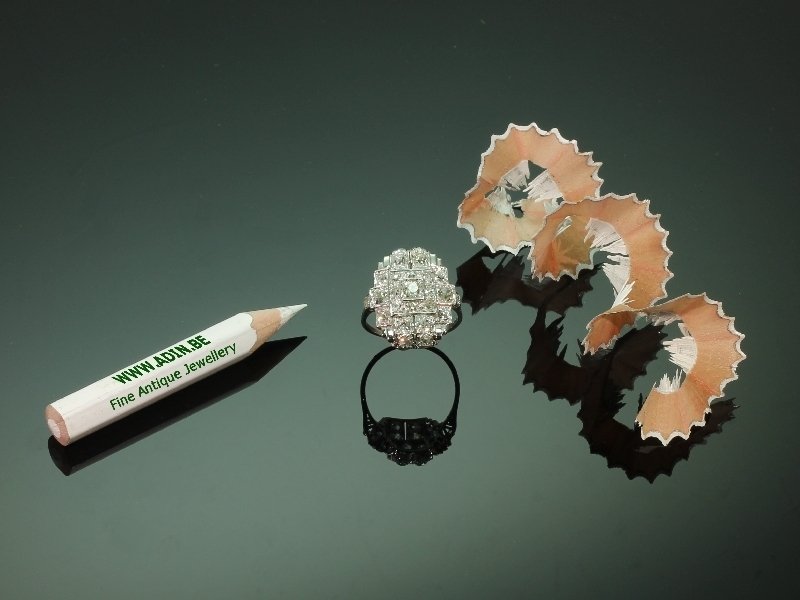
|
Strong design Art Deco platinum diamond ring
Exquisitely designed Art Deco ring covered with a dazzling 25 old mine cushion brilliant cut diamonds, displaying strong geometric influences. The design, with several smaller rectangles and squares radiating from two larger, central squares is overflowing onto the decorative gallery of the ring, incorporating the whole of the ring and creating a slightly domed effect.
One swallow does not make a spring...
(Aristotle 384 – 322 BCE)
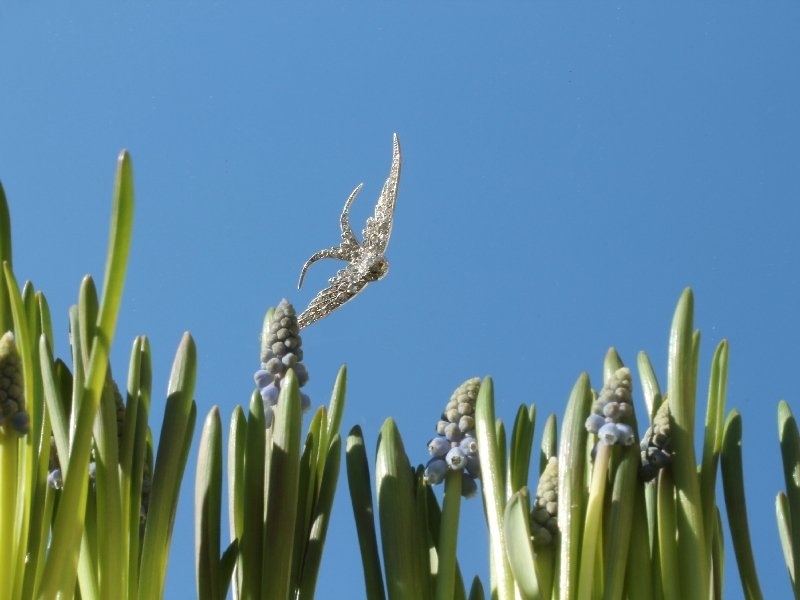 |
Business communication:
Due to extreme weather conditions,
no antique jewellery explanation this week.
Love, destiny and quality...
The Red Thread Through Adin's Antique Jewelry Collection
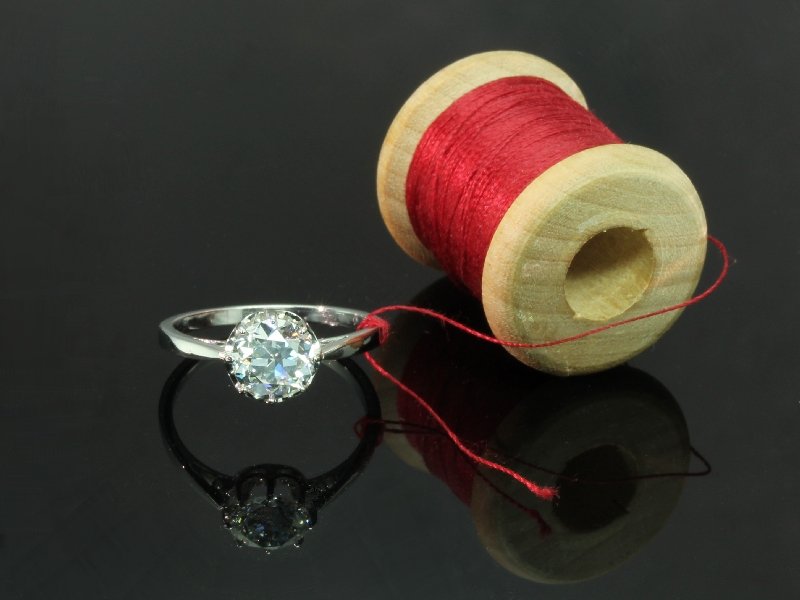 |
Adin's Antique Jewelry is bound to many strings in various hues of red. To which one are you and your loved one connected?
Diamond tools through the centuries
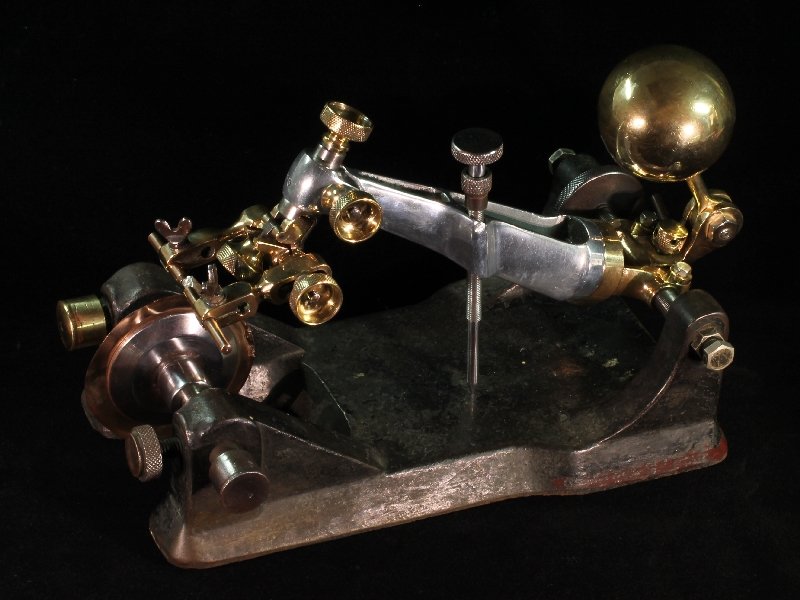
|
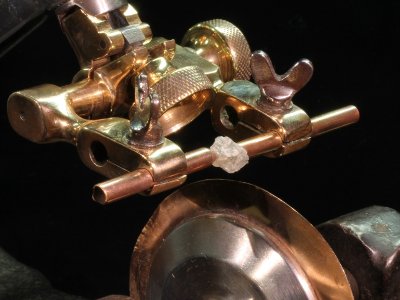 |
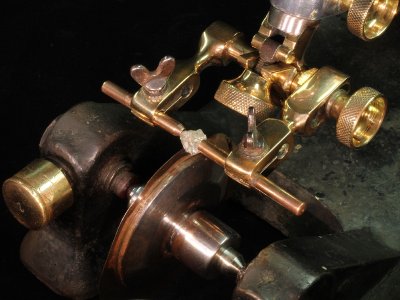 |
| (click the pictures to get to our antique and estate diamond jewelry) |
The machine depicted above is an old diamond saw as they were used since the Industrial Revolution of ca. 1760. A rough diamond is held between two copper rods against a fast rotating copper plate that is covered with diamond powder, thus sawing the diamond. This sawing process would take up to several hours... per single cut!
The use of this device required the expertise and experience of a seasoned craftsman who generally had several saws under his supervision at the same time, and is opposed to modern sawing and cutting techniques which run mostly automatically. The position of the brass ball on the other side of the lever is used to adjust the pressure of the diamond to the rotating blade.
It is because of this manual labor that older cut diamonds aren’t always as perfectly symmetrical as their modern cut counterparts. To us, the standards of cutting that apply to modern cut diamonds, are in no way transferable to old-cuts. Moreover at Adin we find that it is exactly these little "flaws" (by modern standards) that remind us of the artisanal way of the old days and what gives antique jewelry its charm.
Lollipop Lollipop
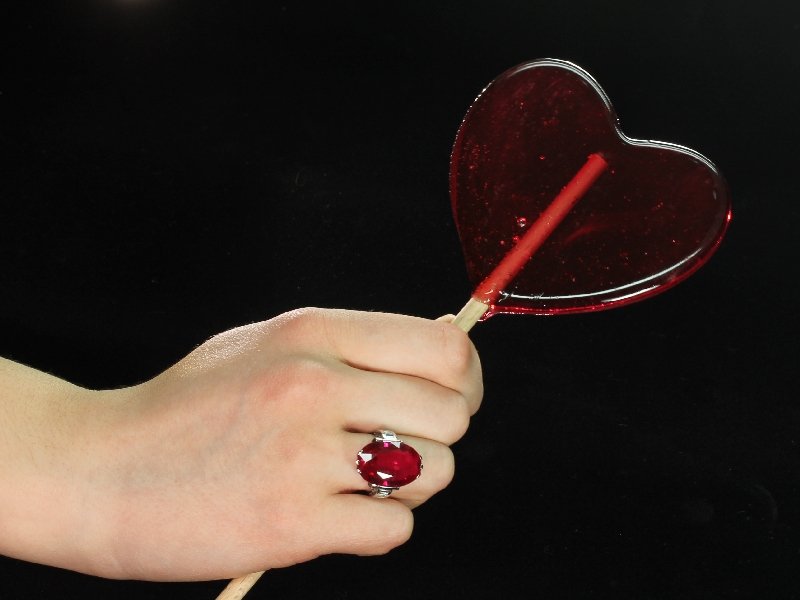 |
Oh lolli lolli lolli
Lollipop Lollipop
Oh lolli lolli lolli
Lollipop Lollipop
Oh lolli lolli lolli
"pop"
Copper, the unexpected link between
antique diamonds and charity...
(an interesting history)
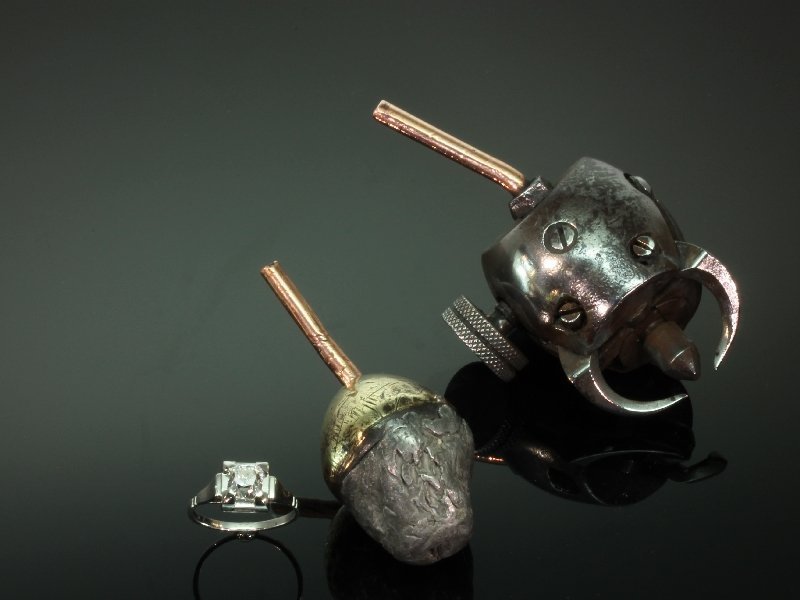 |
What you see here on the picture, are diamond tools and a platinum ring with an old cushion cut or Peruzzi diamond which dates back to the early 18th Century. The tools are diamond holders for polishing diamonds. The one in the front is how they were used in the 18th century and the one in the back is how they were used in the 20th century.
The one in the front has a leaded point on a brass half sphere attached to a copper stem. Diamond polishers would heat the lead so it would be moldable to embed the diamond in. The copper stem was pushed into a wooden tool which allowed the polishers to easily hold the diamond against a polishing wheel. In order to make the many facets a diamond has, they had to bend the copper stem in the wanted position.
Later the brass and lead were replaced by an iron tool (the diamond holder you see in the back) which allowed the polishers to easily change the stone from its holder. But the copper stem remained.
When you bend a metal many times eventually it will break and such was the case with all these copper stems. In 1905 the Dutch Diamond Workers Union agreed with the owners of the diamond polishing factories that from then on, the Union would receive all the broken copper stems. A special fund, the "Koperen Stelen Fonds" or KSF (Dutch for Copper Stem Fund) was founded, solely funded by the revenues of the broken copper stems, for the financial support of diamond workers that were affected by tuberculoses.
Later in 1919 a sort-like agreement between unions and factory owners was made for the recuperation of used diamond powder (needed to polish diamonds) and with those revenues the KSF bought themselves a farm from which they made a sanatorium.
Georgian Antique Jewelry 1714-1830
Natural Seed Pearl Jewelry
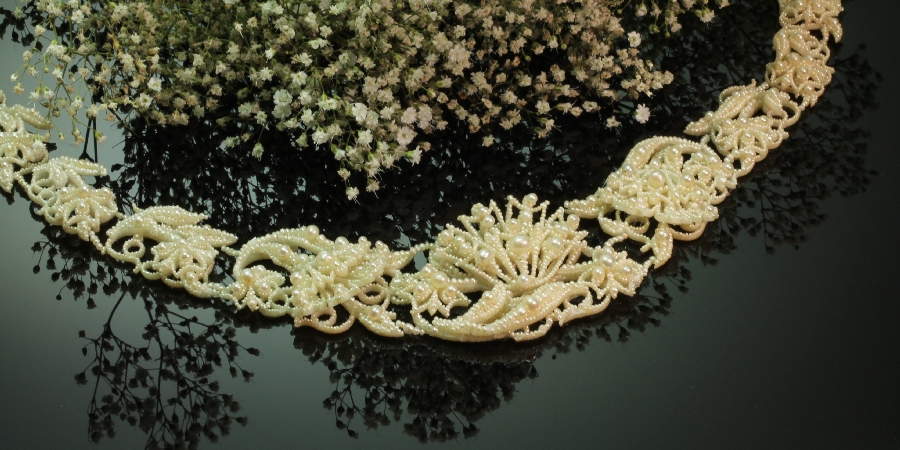 |
|
Not an every day object, to say the least. A parure (a set of matching jewels) of real natural seed pearls. Some 200 years old and in the finest condition and it comes in its original box from the jeweler: Hamlet. His sign reads: "Hamlet Goldsmith & Jeweller To Their Majesties & Royal Family, Princes Street Leicester Square". Natural seed pearls (smaller than 2mm and not completely round) were an essential part in Georgian jewelry. They were made into long tasseled sautoirs, or threaded into intricate designs to support slides and clasps, or used as surrounds for gemstones, cameos and micro mosaics instead of the more traditional diamonds. Particularly exquisite are the parures of seed pearls in various sizes, sewn by hand with horsehair or silk thread on to a drilled mother-of-pearl backing to create necklaces, hair ornaments and earrings of delicate beauty. Due to the size of the seed pearls, special care and patience was needed when drilling the holes, as a even the smallest mistake would result in the loss of value or render the pearl completely useless. It was an art Indian lapidaries where especially famed for, due to the extensive use of seed pearls in traditional Indian jewelry. For all its fragility, a good deal of seed pearl work has survived and fine examples in boxed sets can still be found. Pearls have always had a beautifying effect on women. (From the book "Georgian Jewellery 1714-1830" - where on page 153 you can see some jewelry that came from the Adin collection). Purity and innocence are characteristics often ascribed to pearls, combined with the purity attributed to the lily depicted in the necklace, made them an ideal wedding gift for a blushing bride. The well known story of Queen Cleopatra, dissolving a pearl into vinegar and drinking it to showcase her wealth to Caesar is often disregarded as myth. But there are records of Ranjit Singh, a nineteenth century party loving Indian prince who threw decadent parties where he would ground pearls to a powder and mix them with wine to offer to his favored guests to impress them. We don't suggest giving this necklace the Cleopatra nor the Ranjit Singh treatment, just wearing it will suffice to impress your friends. |
To see our complete collection in:
Euro's
US Dollars
British Pounds
Japanese Yens
Australian Dollars
Canadian Dollars
Eureka!
(Or: "The most devious way to test gold.")
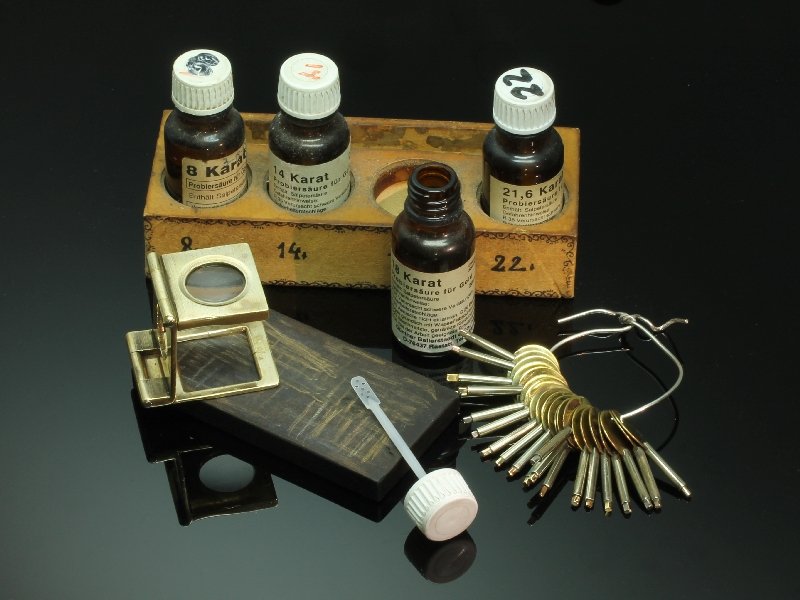 |
The most well known anecdote about Archimedes (287 BC – 212 BC) is the following: King Hiero II gave a goldsmith pure gold to make him a crown. But because the king had doubts on the honesty of the goldsmith he ordained Archimedes to find out whether the goldsmith had been swindling with the alloy by adding silver to it. Archimedes had to find out without damaging the crown.
When Archimedes took a bath he noticed the raising of the water and he came to, what is now known as, Archimedes' principle (a body immersed in a fluid experiences a buoyant force equal to the weight of the fluid it displaces). Archimedes was so thrilled with his finding that he stepped out his bath, forgot to get dressed, and ran to the king while crying "Eureka!" (I have found it!). The test on the crown was done and indeed silver had been mixed in.
What the story tellers forget to tell us, besides what happened to the goldsmith, is that Archimedes probably wasn't aware of the fact that he could have used a touchstone and acid to test the alloy of the crown. The oldest texts on testing gold on touchstones go back till the 5th and 4th century BC. And still today we use this test in the jewelry trade. Imagine, nothing has changed in 2,500 years!
On the picture you see a touchstone, some bottles of acid to test the various alloys and some sample-needles with standardized alloys of gold, platinum and silver as we use this in our daily work at Adin.
Our well-tested collection in:
Euro's
US Dollars
British Pounds
Japanese Yens
Australian Dollars
Canadian Dollars
Chocolates
and other sweet Valentine delights
from Adin's candy store
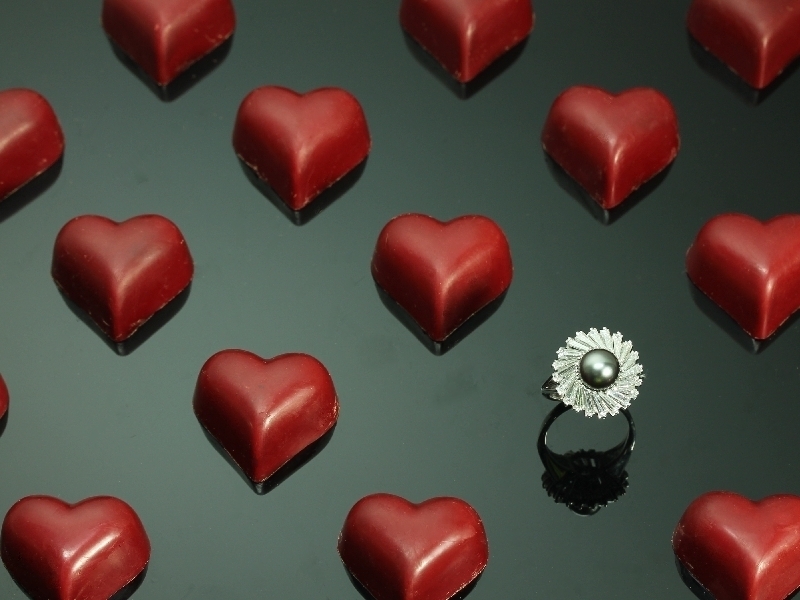 |
Our collection in:
Euro's
US Dollars
British Pounds
Japanese Yens
Australian Dollars
Canadian Dollars
Chris Steenbergen (1920-2007)
Dutch Artist Jeweller
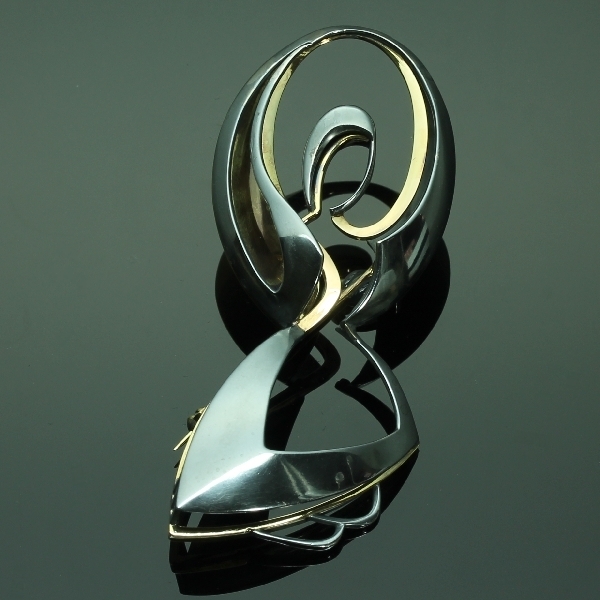 |
Contemporary jewelry, the future antique collectible
Almost half a year ago we were lucky enough to be able to purchase a large part of the personal collection of contemporary jewelry artist Chris Steenbergen. Ever since then we have been searching and studying into his background information to see where his jewelry was exposed and in what books he was mentioned. With this information we have put together a brief summary of Chris Steenbergen in our glossary. It has been an interesting time.
We see this as a unique opportunity for collectors to obtain a collectible piece of future antique jewelry.
Antique Jewelry
The Grand Victorian Period
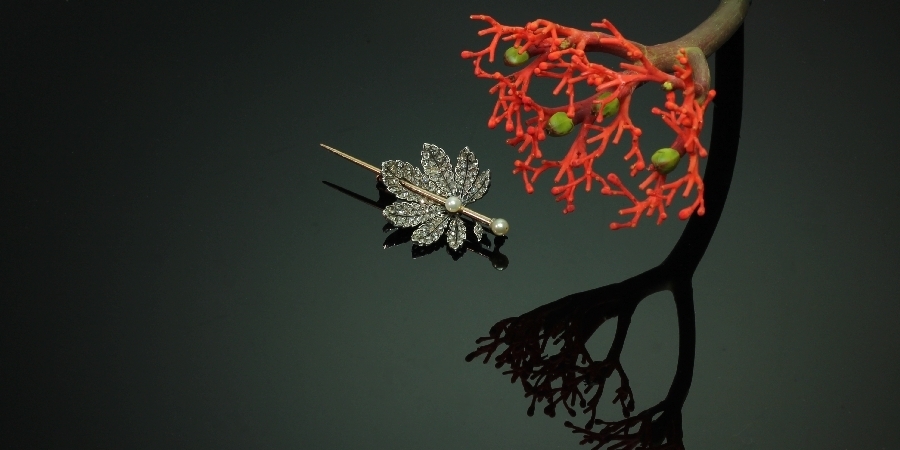 |
French Victorian Jewelry
Victorian decorative arts refers to the style of decorative arts during the Victorian era. The Victorian era is known for its eclectic revival and interpretation of historic styles and the introduction of cross-cultural influences from the middle east and Asia in furniture, fittings, and Interior decoration. Victorian design is widely viewed as having indulged in a regrettable excess of ornament.
Experts divide the reign of Queen Victoria, also called The Victorian era (1837 - 1901) into three periods of about twenty years each; The Romantic Victorian Period (1837 - 1860), The Grand Victorian Period (1860 - 1880), and the Late or Aesthetic Victorian Period (1880 - 1901).
We consider this to be of the Grand Victorian Period.
Our collection in:
Euro's
US Dollars
British Pounds
Japanese Yens
Australian Dollars
Canadian Dollars
An arty mind is a joy forever...
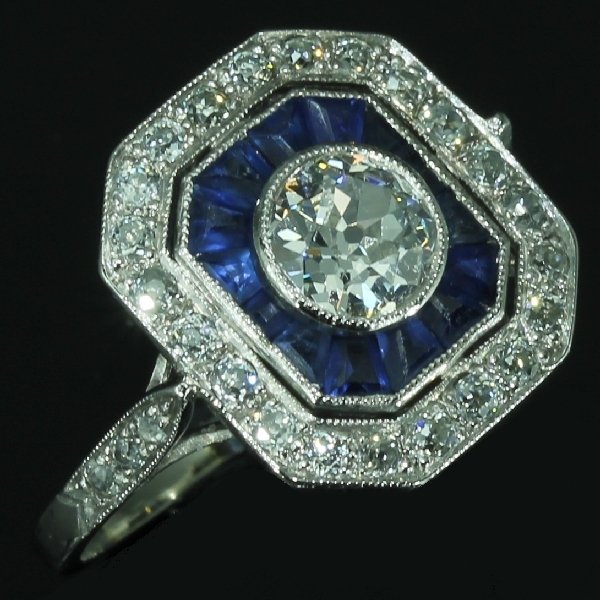 |
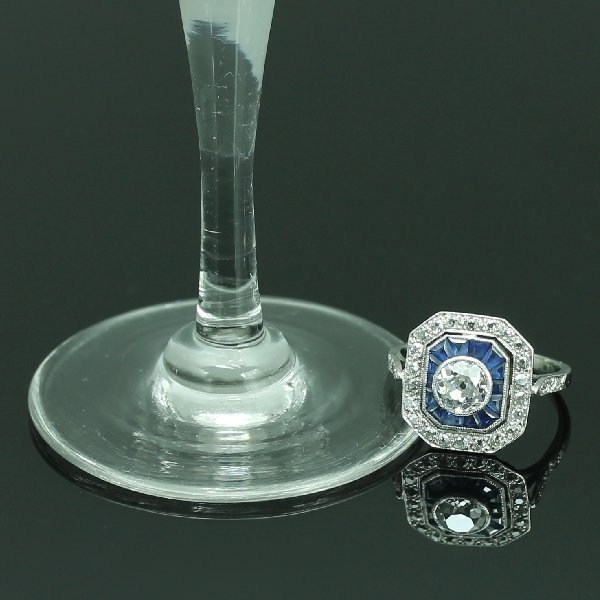 |
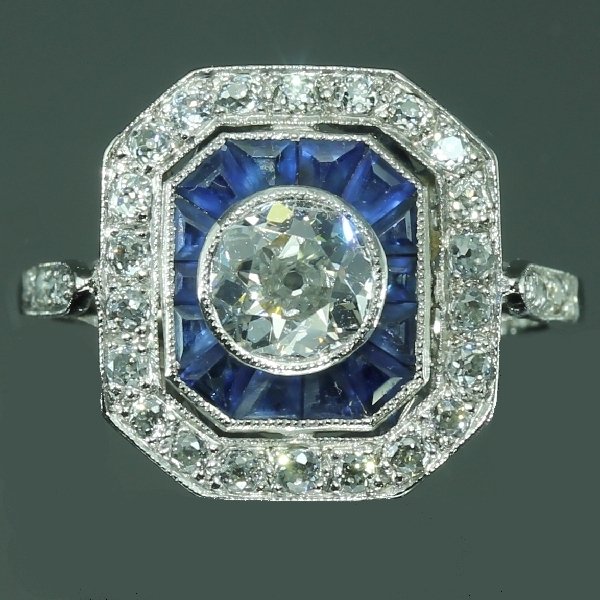 |
|
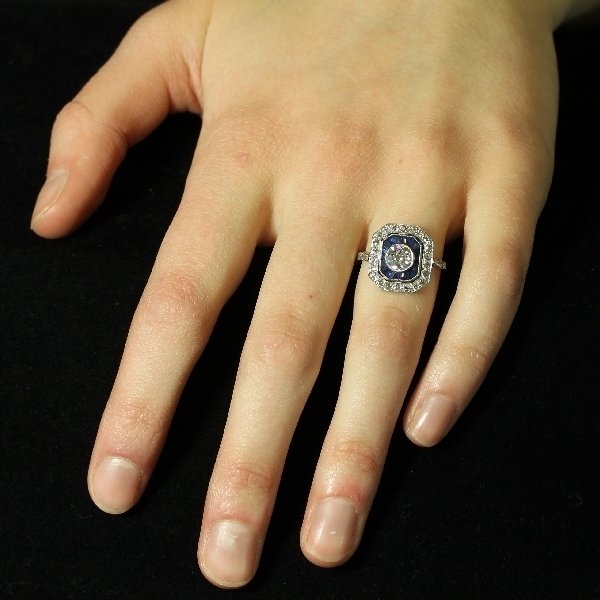 |
|
| Click here for more info on this diamond and sapphire Art Deco ring. | |



